

60 Essential German Travel Phrases
Are you planning a trip to a German-speaking country? There are so many reasons for learning basic German travel phrases before you jump on that plane. And we invite you to try out Drops to learn more than 2500 useful German words and phrases !
The locals will appreciate any effort you make to speak the local language. You’ll make traveling far easier on yourself as you’ll be able to communicate more clearly. You can get to know people who don’t speak English and experience a different culture.
Despite the common belief, not everyone speaks English. Even if you are planning a city break, it will be appreciated if you make an effort to speak a bit of German. It’s a sign of respect for the people in the country you are visiting.
If you want to venture away from the cities, you’ll likely encounter a lot of people who hardly speak any English at all. So it’s worth being prepared!
So let’s dive right in and take a look at my favorite tried and tested German travel phrases.

German Greetings & German Basics
Hallo - “hello”
Tschüss - “bye”
Auf wiedersehen - “goodbye”
Tschau - “ciao”
Guten Morgen - "good morning”
Guten Tag - "good day”
Guten Abend - "good evening”
Gute Nacht - "good night”
Danke / Vielen Dank / Dankeschön - " thanks” and “many thanks”
There are a few ways to say thank you in German. Just use danke for now but expect to hear the other versions as well.
Bitte - "please”
Sorry - "sorry”
Entschuldigen Sie bitte - "excuse me” or “sorry”
Ja - "yes”
Nein - "no”
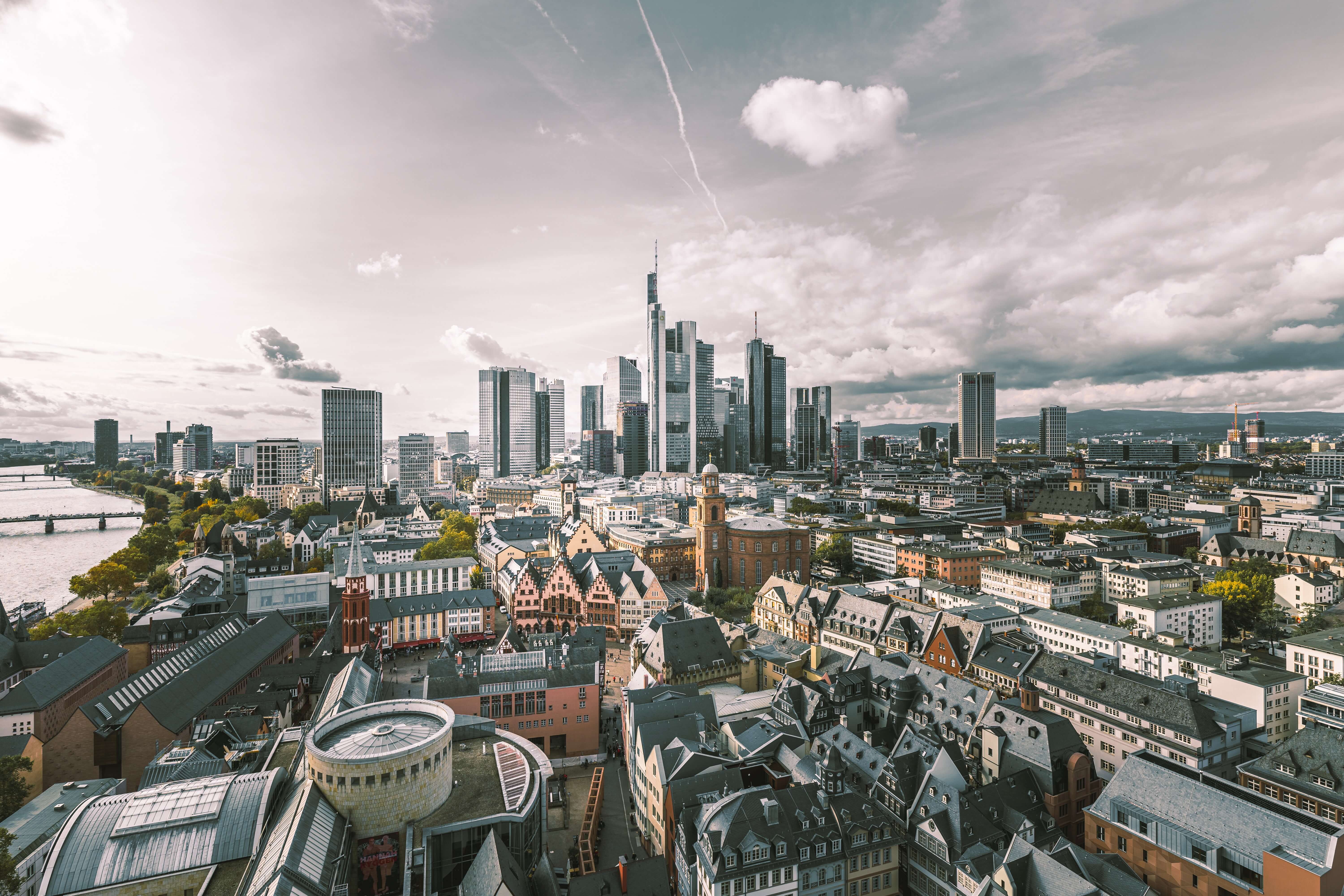
German Phrases You Might Hear
You might also hear the following German expressions:
Gerne - "gladly” or “my pleasure”
Bitte schön - "there you go” or “you’re welcome”
Both of these are often used in restaurants and cafes, when the waiting staff bring your food or drinks over, and also in shops. More on that later!
German Phrases in the Hotel
One of the first things you’ll do when you arrive in a German-speaking country is check into your hotel. There are a few standard phrases which you can use, and the checking in procedure usually follows the same pattern.
The receptionist will ask if you have a reservation (listen for ‘Reservierung’ ), they’ll ask your name (listen for ‘Name’ [Nahmeh] ) and they’ll give you your key (listen for ‘Schüssel’ ).
Checking in to the Hotel in German
Kann ich bitte einchecken? - “Can I check in please?”
Ich habe eine Reservierung - “I have a reservation”
Mein Name ist (...) - “My name is (...)”
Ich bleibe bis Montag hier / bis zum vierundzwanzigsten (24th) Juni hier - “I’m staying here until Monday / until the 24th June”
Wann / wo gibt es Frühstück? - ”When is breakfast?”
Gibt es hier WLAN [vee-lan]? - “ Is there wifi here?”
Wie lautet das WLAN-Passwort? - “What is the wifi password?”
Um wie viel Uhr muss man auschecken? - “By what time must I check out?”
Kann ich bitte auschecken? - “ Can I check out, please?”
What You May Hear in German at the Hotel
Haben Sie eine Reservierung? - “Do you have a reservation?”
Wie ist Ihre Name? - “What is your name?”
Bleiben Sie hier für drei (3) Nächte / eine (1) Woche / zwei (2) Wochen? - “Are you staying here for 3 nights / 1 week / 2 weeks?”
Frühstück ist bis sieben (7) Uhr bis zehn (10) Uhr - “Breakfast is from 7am until 10am”
Ihre Zimmernummer ist… - “Your room number is…”
Shopping in German
If you’re out exploring the city, you’ll probably want to do a bit of shopping for souvenirs. The first phrase (ich schaue mich nur um) in this section was pretty essential for me in the early days when I was too nervous to speak much German. If a shop assistant comes up to help and you’re just having a look around or you’re too nervous to speak, this phrase can come in handy.
What You Can Say When Shopping in German
Ich schaue mich nur um - “I’m just looking around”
Ich suche nach… - “I’m looking for…”
Wie viel kostet das? - “How much does that cost?”
Kann ich mit Bargeld / Kreditkarte bezahlen? - “Can I pay with cash / credit card?”
Könnte ich eine Tüte haben? - “Could I have a bag?”
What You May Hear While Shopping in German
Kann ich Ihnen helfen? - “Can I help you?”
Möchten Sie es probieren? - “Would you like to try it?”
Eating Out in German
When it comes to eating out, this is a really great way to practice a bit of basic German. You only need a few phrases to get by. Your power phrase in this section is ich hätte gern… which you can use for any food or drink order. It’s very polite and the serving staff will appreciate it.
Like when checking into the hotel, there is usually a set pattern to look out for when in a cafe or restaurant:
The waiter will ask for your drinks order (listen for trinken ), they will then ask for your food order (listen for essen ) and later they will ask if you’d like a dessert (listen for Nachtisch ).
What You Can Say in German When Dining Out
Haben Sie ein Tisch für ein (1) / zwei (2) / drei (3) Person(en)? - “Do you have a table for 1 / 2 / 3 person / people?”
Ich hätte gern (…) bitte - “I would like (...) please”
- einen schwarzen Tee (mit Milch) - “a black tea (with milk)”
- einen Kaffee - “a coffee”
- ein Mineralwasser - “a mineral water”
- ein Glas Rotwein - “a glass of red wine”
- ein Glas Weißwein - “a glass of white wine”
- ein Bier - “a beer”
Könnte ich ein stück Kuchen haben? - “Could I have a piece of cake?”
Was empfehlen Sie? - “What do you recommend?”
Kann ich bitte bezahlen? - “Can I pay please?”
What You Might Hear in German at a Restaurant
Was möchten Sie? - “What would you like?”
Ich empfehle (...) - “I recommend (...)”
Was möchten Sie trinken? - “What would you like to drink?”
Was möchten Sie essen? - “What would you like to eat?”
Möchten Sie die Nachtischkarte? - “Would you like the dessert menu?”

Sightseeing in German
When you’re out sightseeing, you’ll probably be able to find an English language tour guide. But there are a lot of situations where you might be on your own and need to ask where something is. The simple phrase wo ist… is very useful and easy to remember.
Entschuldigen Sie bitte - “excuse me please”
Wo ist (…)? - “Where is (...)?”
- die Touristeninformation - “the tourist information”
- das Stadtzentrum - “the city centre”
- das Museum - “the museum”
- der Dom - “the cathedral”
- das Rathaus - “the town hall”
- der Bahnhof - “the train station”
When You Struggle to Understand German
If all else fails, here are some phrases to memorize to help you if you have trouble understanding German. Trust me, I used these a lot when I first started visiting Germany. If you’re a bit nervous about your German, committing a few of these phrases to memory can help you get out of tricky situations.
Ich verstehe nicht - “I don’t understand”
Ich spreche kein Deutsch - “I don’t speak German”
Mein Deutsch ist nicht so gut - “my German is not so good”
Sprechen Sie Englisch? - “Do you speak English?”
Langsamer bitte - “slower please”
Können Sie das bitte wiederholen? - “Can you repeat that, please?”
Was bedeutet (…)? - “What does (...) mean?”
Bitte haben Sie Geduld mit mir - “please be patient with me”
So now you know all my essential German travel phrases! These helped me out a lot, and I hope you find them useful on your travels, too!
Ready to learn more? Try Drops!
About the Author: Emma Jackman is the founder of Emma Loves German an all-round resource for German learners. You’ll find articles on speaking, reading, writing, and listening in German as well as grammar tips, frequently used phrases, and other language learning tips.
Download Drops
Sound fun? Easy? Effective? It is. Get Drops for free!
- Drops iOS | Android
- Scripts iOS | Android
- Droplets iOS | Android
- Visual Dictionary
- Available Languages
Work with Us
- Partnerships
You are using an outdated browser. Please upgrade your browser or activate Google Chrome Frame to improve your experience.
136 Useful German Travel Phrases, Expressions and Vocabulary Words
Planning your big trip to Germany is so exciting—but you’re not done until you’ve brushed up on common German phrases for travel.
In this post, you’ll find a handy phrasebook of German travel phrases and vocabulary , conveniently organized by group.
Print it out or keep it on your phone for smooth travels and the trip of a lifetime.
German Greetings, Introductions and Goodbyes
German expressions for shopping, german travel phrases for the restaurant, german words and phrases for directions, german travel phrases for public transportation, german travel phrases for the hotel, german phrases for getting around the city, german words and expressions for emergencies, german expressions for language help, german guides for traveling, german apps for travelers, why you should learn german travel phrases, and one more thing....
Download: This blog post is available as a convenient and portable PDF that you can take anywhere. Click here to get a copy. (Download)
Please note that most of these German sentences are in the formal Sie conjugation. For your travel purposes, this form should be just fine, although native speakers may opt to use different pronoun forms with you depending on the context.

A trusty guide fits in your backpack or purse, and it serves as a way to look up unfamiliar words and phrases or brush up on vocab while traveling from one place to another. Here are some recommendations:
“Rick Steves’ German Phrase Book and Dictionary”

You can’t go wrong with Rick Steves, since the man has traveled all over Europe (numerous times), hosted his own travel show and written dozens of bestselling guides for European travel.
From meeting new people to ordering a bratwurst, this guide outlines the most common everyday phrases to further improve your travel lingo. It also comes with phonetic spellings , currency information, rail transportation guides and a cheat sheet that you can tear out and slide in your pocket.
“German Survival Guide”

This guide can give you the confidence to speak with people while traveling through Germany and Austria. It touches on cultural points and shows you how to interact with German speakers a various spots such as the Autobahn, grocery stores, ice cream parlors and more.
It includes vocabulary and basic German instruction , with travel and study tips scattered throughout the entire guide. It’s a rather helpful book for your travels if staying in Germany or Austria for quite some time.
Lonely Planet German Phrasebook and Dictionary
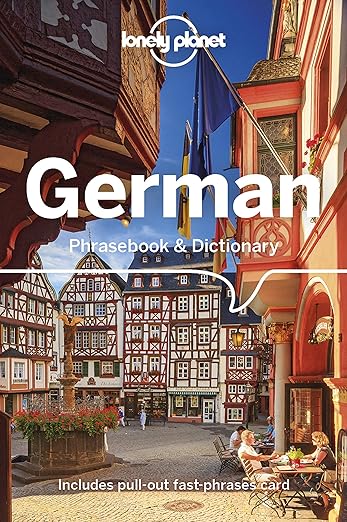
This German phrasebook has a huge section for decoding restaurant menus and ordering food properly, plus a 3,500-word two-way German-English dictionary.
The cultural manners section can prevent you from embarrassing yourself or making others feel uncomfortable and help you feel at ease while traveling.
Lonely Planet at large has tons of German phrasebook and travel guide options available on their site. Read these ahead of time to know what to expect wherever you go, then bring them on your trip to whip out at a moment’s notice.
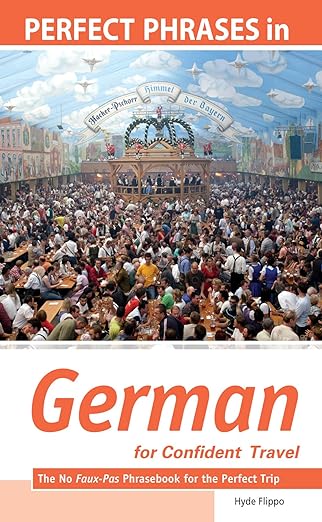
“Perfect Phrases in German for Confident Travel”
Context and manners are extremely important when going to Germany, just like they are in every country. If you insult a person’s language, why would they talk to you in return?
The “Perfect Phrases” book details the proper words and phrases to use while traveling, while also discussing faux pas and how they can hurt your conversation.
“Point it: Traveller’s Language Kit”
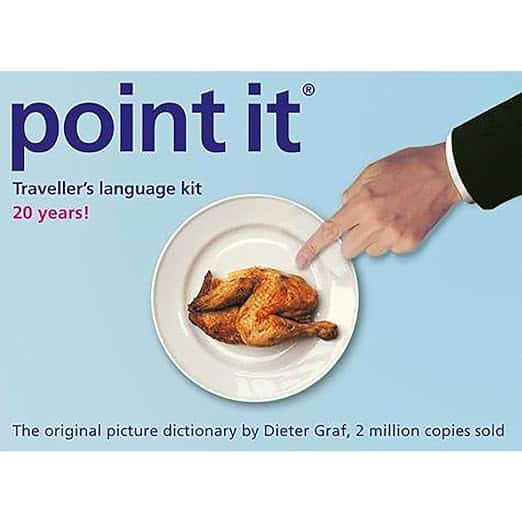
This guide may not help you much with your pronunciation, but it’s an essential tool to bring with you while traveling in German-speaking countries.
The “Point It” book has 1,300 images and words, so you can point at the images when your speaking abilities fail. For example, point to the picture of a chicken when ordering at a restaurant.
A good app can serve as a viable replacement for a travel and language guide that doesn’t add any weight to your pack. Plus, the apps generally offer audio to hear how to pronounce certain words and phrases. Here are some great options:
Learn German Phrases & Words: Phrases for Travel in Germany
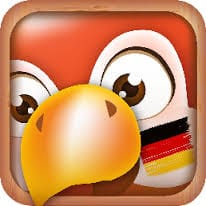
The Learn German Phrases & Words app is designed to boost your speaking capabilities while traveling. It can be used without an internet connection, so you can always depend on it.
The visual guide has carefully categorized sections like greetings, eating, romance and health. The app has over 800 common German phrases, and the German-speaking parrot pronounces everything for you.
Learn German – Phrasebook
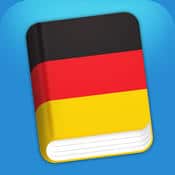
This phrasebook is free, but you can upgrade to receive all of the phrases and words for your travels. The app works as a quick reference perfect for tourists visiting Germany.
The main page shows categories like numbers, general conversation and transportation. Once you select a category and phrase, it gives you the option to hear a spoken version and slow down the audio for better understanding.
Wie Geht ‘s German
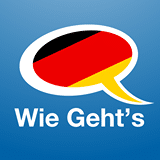
The Wie Geht ‘s app provides a few lessons with audio tracks that are useful while moving around the world. It has a travel section filled with options like directions, meeting people, weather, shopping, money and more.
Membership is required to get most of the content. The app is formatted like a class, but feel free to skip around and use the examples when you come across a moment when they are needed.
Germany Travel Guide Offline

The German Travel Guide app is not going to help you much with your German learning, but it may prevent you from getting lost.
The app works online and offline, with detailed maps for navigating cities like Berlin, Munich and Hamburg. Check out weather, time and fun suggestions while moving around the cities.
With this app, you can immerse yourself in the German language and culture before stepping foot in Germany.
FluentU takes authentic videos—like music videos, movie trailers, news and inspiring talks—and turns them into personalized language learning lessons.
You can try FluentU for free for 2 weeks. Check out the website or download the iOS app or Android app.
P.S. Click here to take advantage of our current sale! (Expires at the end of this month.)

Try FluentU for FREE!
- Even if you can’t have a fluent conversation, native German speakers always appreciate when foreigners put the effort into learning a bit of their language . It shows respect and demonstrates that you truly want to reach out and connect with people while abroad.
- You won’t be totally reliant on your German phrasebook. Yes, your German phrasebook has glossy pages and you love getting the chance to use it—but you want to be able to respond quickly when people speak to you, at a moment’s notice.
- If you can express yourself with some basic German phrases , you are less likely to be taken advantage of by taxi drivers, souvenir shops and waiters!
- The perception that all German speakers speak English is simply not true. Even in big German cities you’ll find loads of people that know very little English. You don’t want to have to track down other English speakers every time you have a question or want to make a friend.
Try practicing some of these phrases out loud to get your pronunciation right before leaving on your travels.
Before we part ways, there’s one final German travel phrase you need to know: Gute Reise! (Have a good trip!)
Want to know the key to learning German effectively?
It's using the right content and tools, like FluentU has to offer ! Browse hundreds of videos, take endless quizzes and master the German language faster than you've ever imagine!

Watching a fun video, but having trouble understanding it? FluentU brings native videos within reach with interactive subtitles.

You can tap on any word to look it up instantly. Every definition has examples that have been written to help you understand how the word is used. If you see an interesting word you don't know, you can add it to a vocabulary list.

And FluentU isn't just for watching videos. It's a complete platform for learning. It's designed to effectively teach you all the vocabulary from any video. Swipe left or right to see more examples of the word you're on.

The best part is that FluentU keeps track of the vocabulary that you're learning, and gives you extra practice with difficult words. It'll even remind you when it’s time to review what you’ve learned.
Start using the FluentU website on your computer or tablet or, better yet, download the FluentU app from the iTunes or Google Play store. Click here to take advantage of our current sale! (Expires at the end of this month.)
Enter your e-mail address to get your free PDF!
We hate SPAM and promise to keep your email address safe

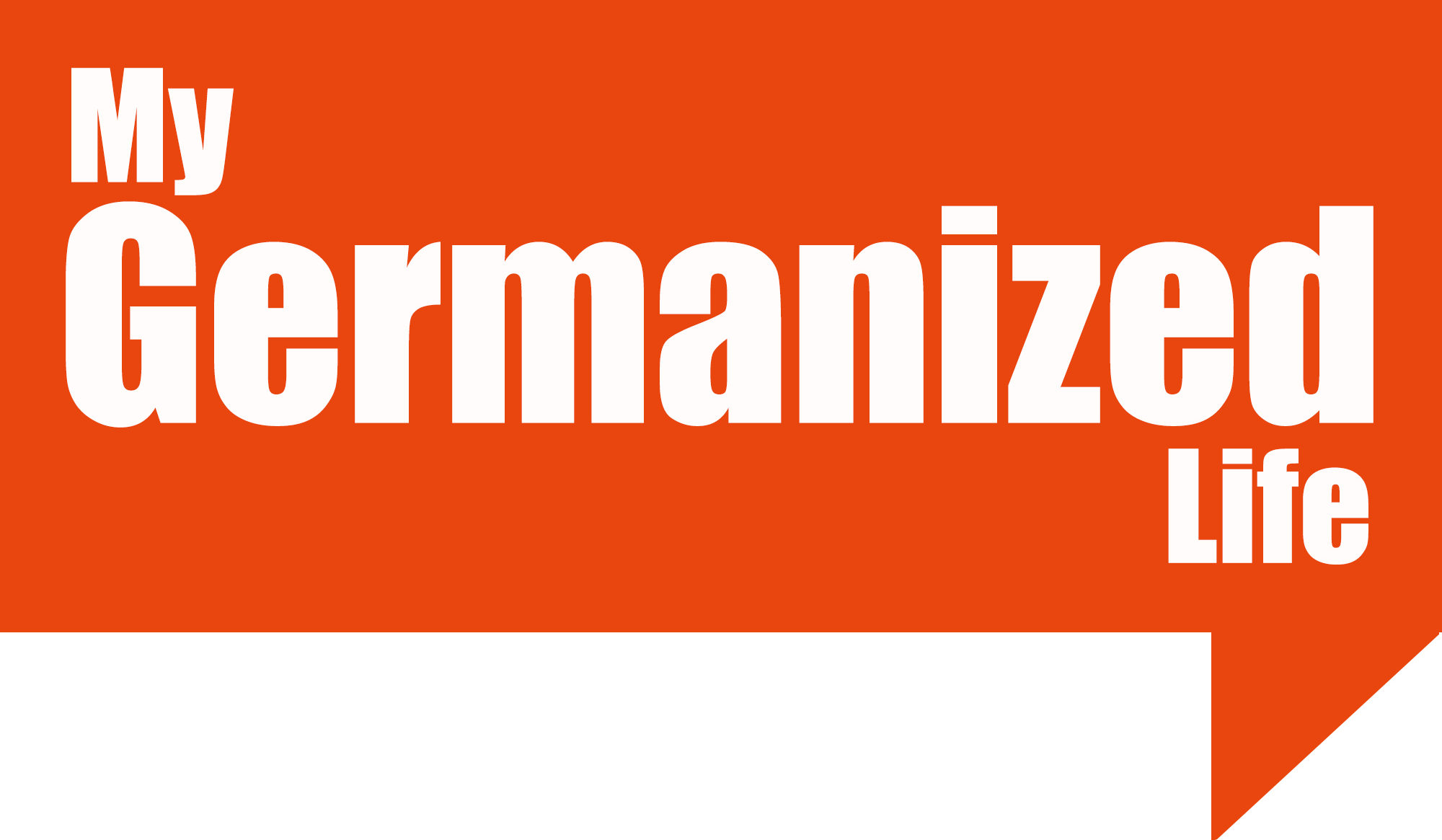
Wilkommen zusammen! Welcome everyone! Today you’re going to learn some useful German travel phrases that are essential for your trip to Germany. I assume you’ve already learned some basic words like Guten Tag and Danke Schön, so we’re going to dive right into some new German phrases .
German Phrases for Transportation and Directions
Entschuldigung, wo ist das WC? – Excuse me, where is the restroom?
Es ist um die Ecke – It’s around the corner
In welcher Richtung ist der Bahnhof? – Which direction is the station?
Nach links/rechts – To the left/right
Sie müssen links/rechts/geradeaus laufen/fahren – You have to walk/drive left/right/straight
Wann fährt der nächste Bus? – When is the next bus?
Können Sie mir bitte zeigen wie der Fahrkartenautomat funktioniert? – Can you please show me how the ticket machine works?
Wie weit ist es bis zur Stadtmitte? – How far is it to the city center?
Es ist etwa 500 meter entfernt – It’s about 500 meters away
Wo ist der Eingang/Ausgang? – Where is the entrance/exit?
Sie müssen mit dem Aufzug ins Erdgeschoss – You have to take the elevator to the ground floor
Wo kann man hier parken? – Where can I park here?
Ich habe mich verlaufen/verfahren – I’m lost (by foot or by vehicle)
Es gibt ein Parkhaus in der Lindenstraβe – There’s a parking garage in the Linden street
German Travel Phrases for Checking in to Your Hotel
Haben Sie eine Reservierung? – Do you have a reservation?
Ich habe eine Reservierung – I have a reservation
Haben Sie ein Zimmer frei? – Do you have a room available?
Ich möchte zwei Nächte bleiben – I want to stay for two nights.
Um wie viel Uhr darf ich einchecken? – At what time can I check in?
Um wie viel Uhr muss ich auschecken? – When do I have to check out?
Wie ist Ihre Name? – What is your name?
Mein Name ist – My name is
Haben Sie WLAN? – Do you have WIFI?
Wie lautet das WLAN-Passwort? – What is the wifi password?
Um wie viel Uhr gibt es Frühstück? – What time is breakfast?
Frühstück ist von sieben (7) Uhr bis elf (11) Uhr – Breakfast is from 7am until 11am
German Travel Phrases for Shopping at the Store
Kann ich Ihnen helfen? – Can I help you?
Suchen Sie etwas bestimmtes? – Are you looking for anything in particular?
Ich schaue mich nur um – I’m just looking around
Wie viel kostet das? – How much does this cost?
Es kostet 9.99 – It costs 9.99
Wo finde ich Lederhosen? – Where can I find Lederhosen?
Im Gang vier – In aisle four
Haben Sie die Schuhe in Gröβe 39? – Do you have the shoes in size 39?
Um wie viel Uhr machen Sie zu? – What time do you close?
Um wie viel Uhr machen Sie auf? – What time do you open?
Kann ich mit Kreditkarte bezahlen? – Can I pay by credit card?
Ich bräuchte eine Tüte bitte – I’m going to need a bag please
German Travel Phrases for Friendly Conversation
Es freut mich dich/Sie kennenzulernen – It’s nice to meet you
Woher kommen Sie? Woher kommst du? – Where are you from
Ich komme aus Bayern – I come from Bavaria
Sollen wir uns hinsetzen? – Should we sit down?
Sind Sie zum ersten mal in Deutschland? – Is it your first time in Germany?
Wie gefällt es Ihnen? – How do you like it?
Es ist wunderschön – It’s wonderful
Wie lange bleiben Sie? – How long are you staying?
Ich bleibe zwei Wochen – I’m staying for two weeks
German Phrases for When You Don’t Understand
Mein Deutsch ist nicht sehr gut – My German is not very good
Könnten Sie bitte langsamer sprechen? – Could you speak slower please
Können Sie das bitte wiederholen? – Can you repeat that please
Was bedeutet diese Wort? – What does this word mean?
Ich habe leider nicht verstanden – I’m afraid I didn’t understand
Similar Posts
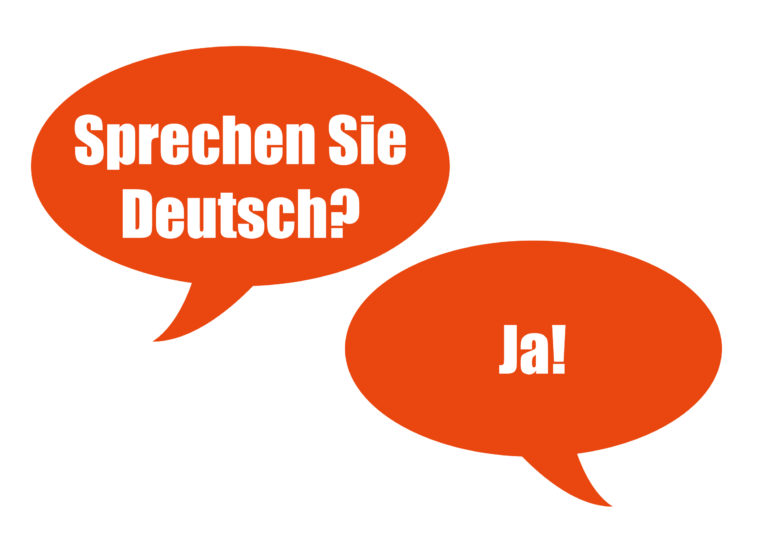
Speak German: Basic Pronunciation Guide
Speak German: Basic Pronunciation Guide The fear of speaking a new language and making mistakes is something most of us are very familiar with. But, how can you overcome this barrier and learn to speak German? You’re probably worried that you won’t be able to pronounce German sounds correctly, but it’s not as hard as…
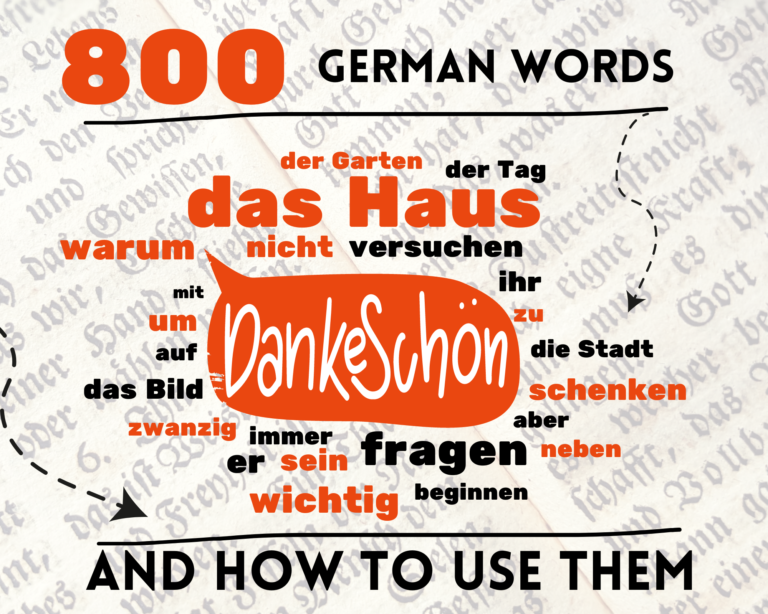
Over 800 of the Most Common German Words and How to Use Them
These most common German words form the cornerstone of your German language learning. Whether you’re a beginner or looking to brush up your skills, familiarizing yourself with these words will empower you to navigate conversations, understand texts, and dive into German culture. In this post, you’ll not only get a list of over 800 of…
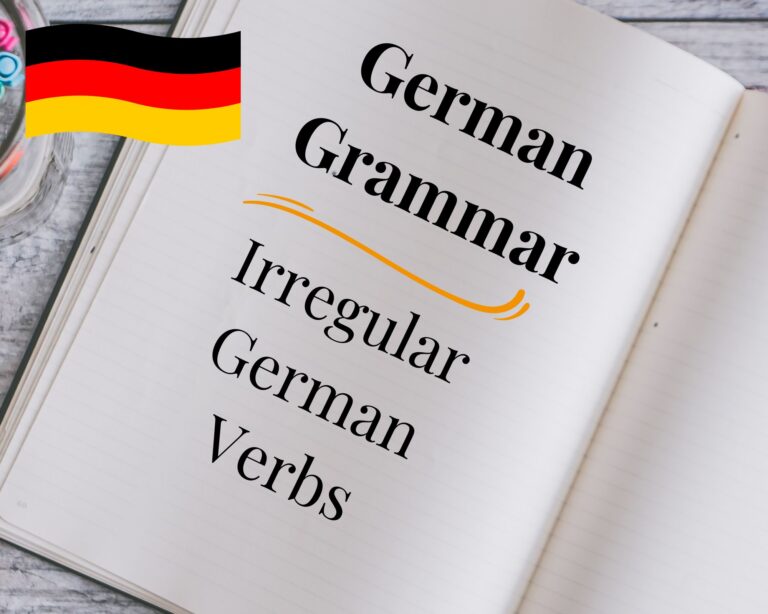
Irregular German Verbs and How to Use Them
Welcome to today’s German lesson, where you’ll be exploring a set of irregular German verbs that will challenge both beginner and advanced learners. For beginners, we’ll be focusing on how to correctly conjugate these verbs in various tenses, while advanced learners will have the opportunity to expand their vocabulary and learn new advanced adverbs and…

The German Cases Beginner’s Guide
German has four cases that include the nominative, accusative, dative, and genitive. But what do they mean, and how should you know which one to use when? This beginner’s guide introduces you to German cases and helps you understand the concept behind this unusual grammar topic. As English speakers, the idea of German cases may…
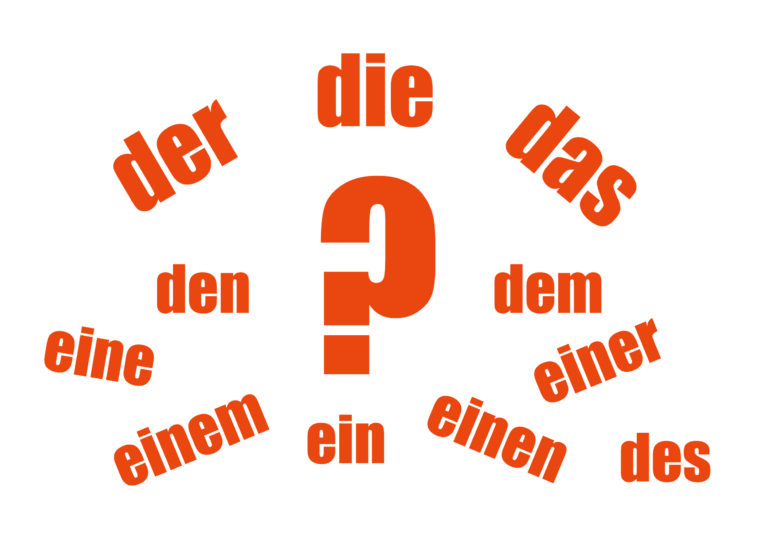
German Definite and Indefinite Articles
“The” and “A” in German: Definite and Indefinite Articles Are you wondering how to say “the” or “a” in German? You may have heard of der, die, and das, but how do you choose the right one, and how many ways are there to say these simple words? The German definite and indefinite articles may…
40 German Restaurant Phrases for a Better Mahlzeit
Are you ready to practice 40 German restaurant phrases to use when you go out to eat? This conversation practice will guide you through the most common, must-know phrases for ordering food at a restaurant. So buckle up your Lederhosen and get ready to speak along. Getting Your Table These German restaurant phrases will help…
Insert/edit link
Enter the destination URL
Or link to existing content

47 Survival German Travel Phrases [You Need To Know]
Are you dreaming about your next trip to Germany? Maybe this is your first visit and you’re keen to blend in. Or perhaps you’ve visited German speaking countries a few times but always resorted to using English.
In this post you will discover 47 tried and tested German travel phrases that have worked well for me on my many trips to Germany. You’ll also hear audio of each of the phrases.
After reading this post you will:
- Know how to say 47 essential German travel phrases
- Hear how each of the phrases sound
- Be able to mix and match which ever phrases you want to try out on German speakers
Why Learn German Travel Phrases?
Before we get started I want to give you a quick pep talk.
If you’re travelling to a German speaking country any time soon, you may head there with the idea that ‘everyone speaks English’.
If you’re heading for a city break, you’ll probably meet people in the tourist industry that do speak a bit of English. But once you step off the tourist path, you’ll realise that many people don’t speak much English at all.
Even if you’re opting for a city break, it shows a great deal of respect to the local people to at least learn how to say ‘hello’, ‘please’ and ‘thank you’ in German. If you expand your knowledge and learn how to say more German tourist phrases such as ‘I would like’ or ‘can I check in?’ the person you’re speaking to will be really impressed.
In my many trips to Germany, I’ve learned to never be afraid of speaking German with the locals. Even during my earlier visits when I tried and butchered that poor language, the German speakers I spoke to were so happy that I was even trying.
Don’t let the fear of making mistakes stop you from trying. Even if you mostly speak English, then throw in one of these German travel phrases somewhere, you’ll make progress.

Common German Words
Let’s make a start with the most common German travel phrases and words you’ll encounter as a tourist. These are simple pleasantries that will be appreciated by the locals. So make sure you learn some of these even if you don’t learn anything else.
Ready to finally master German sentence structure?
Download your German Sentence Structure Cheat Sheet for just $1 and get your sentences to flow naturally.

Asking For Help / Not Understanding
Whenever you’re in a country where you don’t speak a lot of the language, it’s always helpful to learn a few ’emergency phrases’.
For example, one time when I was in Germany, but didn’t know much German at that point, another guest in a hotel started chatting to me in German. My go-to phrase to politely end a conversation was sorry, mein Deutsch ist nicht so gut (sorry, my German isn’t very good).
And just so you know, in a real emergency, the emergency number in Germany is 112.
Whether you’re stopping for a quick coffee or a full on meal, there are loads of chances to practice some German travel phrases with the waiting staff when you order food and drink in German . At the very least, memorise ich hätte gern … (I would like…) and then add your drink or meal of choice. It’s really polite and shows a lot of respect to the person serving you to order in this way.
Some key words to listen out for are trinken (drink) and essen (eat). These are great words to train yourself to listen for so you can get a feel for what is being asked.

In a hotel you’re most likely to meet English speakers, but if you want to practice some German, the receptionists are usually very happy to speak to you. Why not try some of these essential phrases out?
Getting Around & Directions
Thanks to Google Maps, you probably won’t need to ask a local for directions, but it’s always helpful to know how to ask the way to the toilet / bathroom if you’re in a café.
One thing to keep in mind when shopping in Germany, is that you’ll encounter shops, cafés and restaurants that only accept cash. So it’s a good idea to check before you order.
German has 3+ words for receipt, and in my experience they seem to be interchangeable. One way of saying receipt isn’t limited to the area you’re in, so you might hear Quittung, Bon and Beleg being used all in the same city. Keep your ears alert for these tricky words!
So there you go, 47 essential German travel phrases, all tried and tested and ready for you to use on your next trip.
Leave a Reply Cancel reply
Your email address will not be published. Required fields are marked *
Save my name, email, and website in this browser for the next time I comment.
German phrases at hotel

German phrases at hotel.When we hear the word “hotel,” an image immediately springs to mind—perhaps it’s a luxurious space characterized by comfort and excellent service, or maybe it’s a simple establishment offering the bare essentials.
German sentenses at hotel
German vocabulary at hotel, german conversation at hotel.
Finally,every hotel tells a story, whether it’s the tale of a small inn in a remote village or that of a global hotel chain. And every guest walks away with an experience and memories that leave an imprint, whether that stay was for business, tourism, or leisure.
Other lessons

Future perfect in German
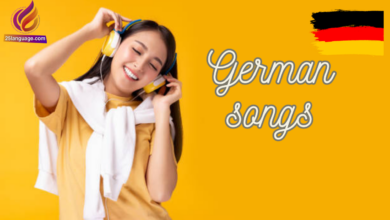
German songs for beginners with lyrics

Regular verbs in present tense in German

das vs. dass in German

Phrases of congratulation on mothers day in German

German phrases about Time management

Verbs with Prepositions in German

Tips to Learn German

doctor phrases in German

greetings phrases in German

Verb tenses in German

German Christmas Idioms

Seven little lambs and the wolf in German

Past Perfect/Pluperfect Tense in German Grammar

Relative Clauses in German Grammar

Amusement parks in German

German phrases about football

German phrases at home

phrases in train station in German

German phrases at restaurant

German Idioms with Gürtel (belt)

Song 9 bis 9 in German

Is German Hard to Learn? Yes – But in a Good Way.

Drug synthesis science in German

Song Die Eine in German

German phrases about Golf

Interrogative Rules in German

Long Distance Love in German

Passive Voice in German

Visit a bookstore in Germany
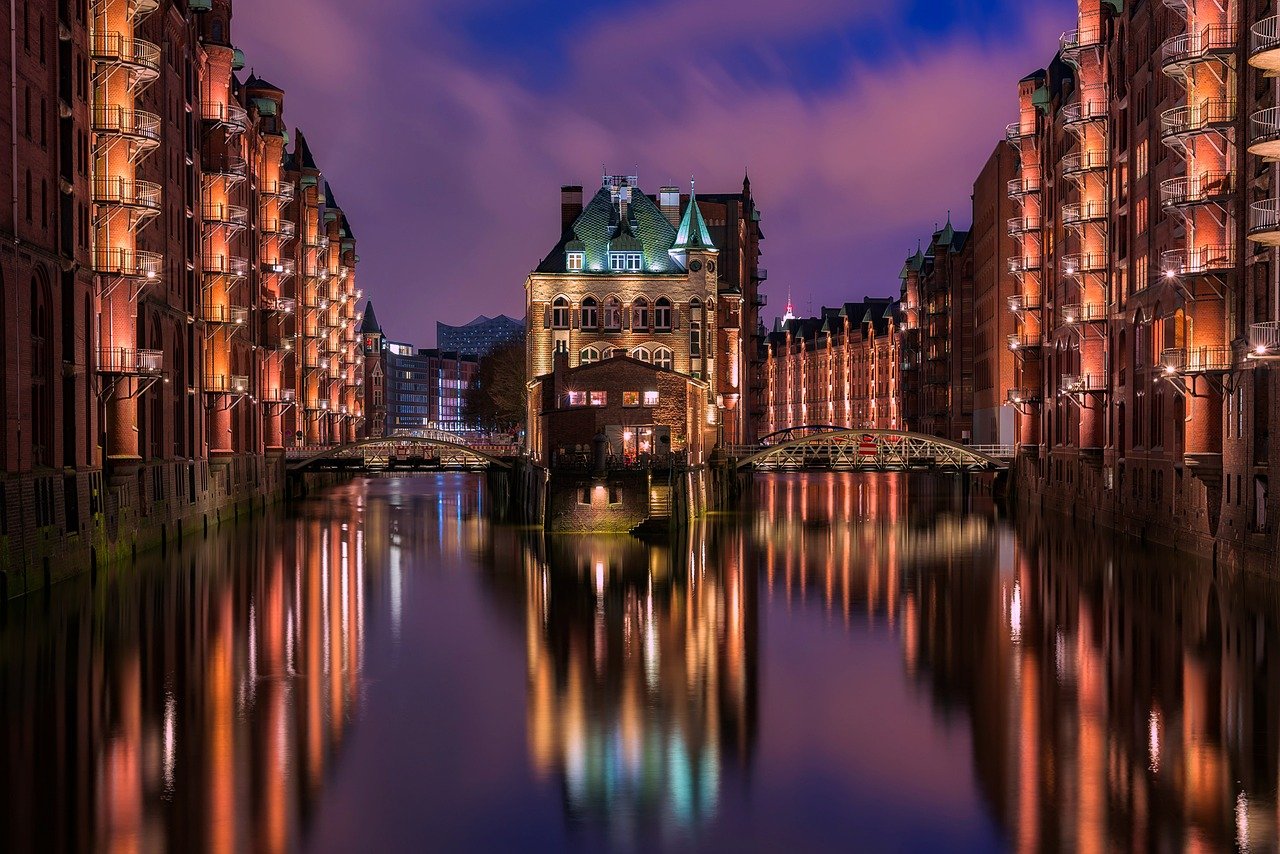
Gute Reise! Have a Great Trip! Travel Phrases in German
- Post author: Language Garage
- Post published: December 16, 2020
- Post category: German / Travel / Vocabulary
In this post we’ll look at a lot of German vocabulary and expressions that will come in handy when you travel. Let’s start with the basics.
Mein Koffer: My Suitcase
Before you travel, you of course need to pack. So let’s start there.
- der Koffer, -Ø suitcase
- Ich muss meinen Koffer packen. I need to pack my suitcase.
- Mein Koffer ist schwer/leicht/voll/leer. My suitcase is heavy/light/full/empty.
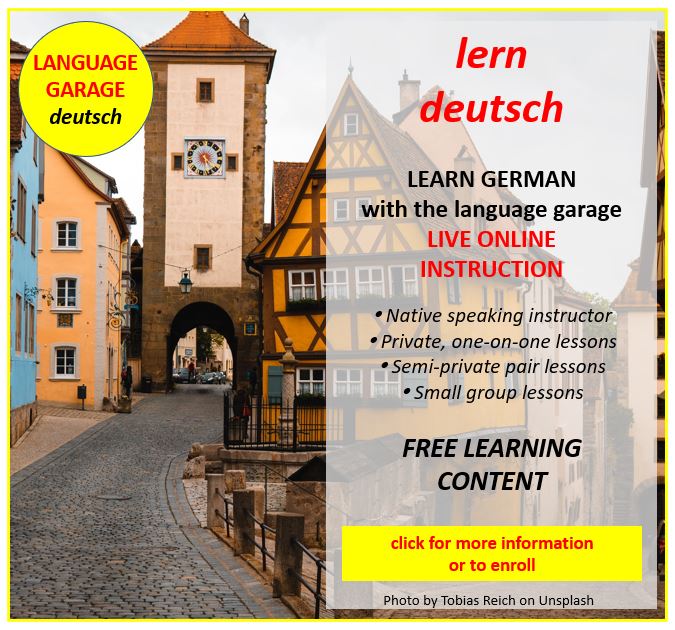
- Meine Sachen passen nicht in meinen Koffer. My clothes don’t fit in my suitcase.
- Ich brauche eine andere Tasche/einen anderen Koffer. I need another bag/suitcase.
Am Flughafen : At the Airport
If you’re traveling, you’re probably going to leave from and arrive at an airport.
- das Flugticket, -s/die Bordkarte, -n/der Pass, -¨e/der Flug, -¨e plane ticket, boarding pass, passport, flight
- die Ankunft/der Abflug/das Gate, -s/die Gepäckausgabe arrivals, departures, gate, baggage claim
- die Passkontrolle, der Zoll passport control, customs
- Ich muss mein Gepäck aufgeben. I need to check my luggage.
- Ich habe Handgepäck. I have a carry-on bag.
- Wann geht der Flug ab? When does the flight leave?
- Bei der Sicherheitskontrolle gibt’s eine lange Schlange. There’s a long line at security.
- In zehn Minuten gehen wir an Bord. We’re boarding in ten minutes.
- der Fensterplatz/Gangplatz/Mittenplatz window seat, aisle seat, middle seat
- der Pilot, -en/die Pilotin, -nen/der Flugbegleiter, -Ø/die Flugbegleiterin, -nen pilot, flight attendant
- Bitte legen Sie die Sicherheitsgurte an. Please fasten your seatbelt.
- Bitte stellen Sie ihr Mobiltelefon ab. Please turn off your cell phone.
- Wir lang ist der Flug? How long is the flight?
- Wir landen in zehn Minuten. We’re landing in ten minutes.
- Wir müssen durch den Zoll und die Passkontrolle. We need to go through customs and passport control.
- Wo ist die Gepäckausgabe? Where’s the baggage claim area?
- Wo stehen die Taxis? Where are the taxis?
- Fährt ein Zug/Bus in die Stadt? Is there a train/bus to the city?
- Ich muss Geld wechseln. I need to exchange money.
Im Hotel: At the Hotel
You’ve finally arrived, so let’s get you settled in your hotel room.
- Wo ist das Hotel? Where is the hotel?
- Ich würde mich gern anmelden. I’d like to check in.
- Ich habe eine Reservierung auf den Namen _____. I have a reservation. My name is ______.
- Wo ist der Aufzug? Where’s the elevator?
- Auf welcher Etage ist mein Zimmer? What floor is my room on?
- das Zimmer, -Ø/das Bett, -en/das Badezimmer, -Ø/das Fenster, -Ø/der Fernseher, -Ø/das Telefon, -e room, bed, bathroom, window, television, phone
- das Bettlaken, -Ø/die Wolldecke, -n/das Kissen, -Ø/der Bademantel, -¨Ø sheets, blanket, pillow, bathrobe
- Gibt es Zimmerservice? Is there room service?
- Kann ich bitte eine Extrawolldecke bekommen? Can I have an extra blanket?
- Kann ich ein Bügeleisen und ein Bügelbrett bekommen? Can I have an iron and an ironing board?
- Kann ich einen Föhn bekommen? Can I have a blow-dryer?
- Kann ich meine Sachen waschen lassen? Can I have my clothes washed?
- Die Heizung funktioniert nicht. The heat isn’t working.
- Die Klimaanlage funktioniert nicht. The air conditioning isn’t working.
- Lassen Sie bitte mein Zimmer sauber machen. Please clean my room.
- Kann ich ein anderes/größeres/ruhigeres Zimmer bekommen? Can I have another room / a bigger room / a quieter room?
- Wo wird das Frühstück serviert? Where do we eat breakfast?
- Gibt es ein Fitnesscenter? Is there an exercise room?
- Gibt es ein Schwimmbecken? Is there a pool?
- Gibt es eine Bar? Is there a bar?
- Gibt es ein Restaurant? Is there a restaurant?
- Haben Sie Wifi? Do you have WiFi?
- Wie ist das Wifi-Passwort? What’s the WiFi password?
- Wann muss das Zimmer geräumt werden? What time is check-out?
- Ich würde gern auschecken. I would like to check out.
- Könnten Sie mir bitte ein Taxi rufen? Can you call a taxi for me?
Ich habe hunger! I’m hungry
When you’re traveling, it’s important to know some basic terms for food, drink, and how to navigate a nice meal at a local restaurant. Check out this post , which covers all of that!
- Wo ist der Bahnhof? Where is the train station?
Once you’re settled into your hotel, you probably want to know where things are in case you need to pop out and buy something.
- Gibt es ein 24-Stunden-Geschäft in der Nähe? Is there a convenience store nearby?
- Gibt es eine Apotheke in der Nähe? Is there a pharmacy nearby?
- Gibt es einen Supermarkt in der Nähe? Is there a supermarket nearby?
- Gibt es ein gutes Restaurant in der Nähe? Is there a good restaurant nearby?
- Gibt es ein Krankenhaus/eine Arztpraxis in der Nähe? Is there a hospital/doctor’s office nearby?
- Gibt es einen Buchladen in der Nähe? Is there a bookstore nearby?
- Gibt es ein Kleidungsgeschäft in der Nähe? Is there a clothing store nearby?
- Gibt es ein Schuhgeschäft in der Nähe? Is there a shoe store nearby?
- Wo ist die U-Bahnhaltestelle? Where is the subway station?
- Wo ist die Bushaltestelle? Where is the bus station?
- Das ist gleich neben dem Hotel. It’s next to the hotel.
Of course, if you ask where things are, you’ll need some basic vocabulary related to directions and getting around.
- Ist das in der Nähe? Is it nearby?
- Ist das weit? Is it far from here?
- Kann ich dahin zu Fuß gehen? Can I walk there?
- Das ist (ganz) in der Nähe. It’s nearby.
- Das ist sehr weit von hier. It’s far from here.
- Das ist gleich gegenüber. It’s across the street.
- Gehen Sie über die Straße. Cross the street.
- Gehen Sie über die Brücke. Cross the bridge.
- Gehen Sie nach rechts. Turn right.
- Gehen Sie nach links. Turn left.
- Gehen Sie geradeaus. Go straight ahead.
- Das ist beim Bahnhof. It’s next to the train station.
- Das ist in der Nähe vom Bahnhof. It’s near the train station.
- Das ist hinter dem Bahnhof. It’s behind the train station.
- Das ist links neben dem Bahnhof. It’s the left of the train station.
- Das ist rechts neben dem Bahnhof. It’s to the right of the train station.
- Das ist vor dem Bahnhof/gegenüber vom Bahnhof. It’s in front of the train station.
Lasst uns eine Stadtrundfahrt machen. Let’s go sightseeing.
- Wir wollen eine Stadtrundfahrt machen. We want to go sightseeing.
- Haben Sie einen Stadtplan? Do you have a map of the city?
- Gibt es einen Bus für Stadtrundfahrten? Is there a tour bus?
- Gibt es einen Reiseführer? Is there a tour guide?
- Wir möchten ein Museum besuchen. We want to go to a museum.
- Wir möchten eine Kathedrale/einen Tempel/eine Moschee besichtigen. We want to visit a cathedral/temple/mosque.
- Wir möchten in den Park gehen. We want to go to the park.
- Wir möchten eine Kunstgalerie besuchen. We want to visit an art gallery.
- Wir möchten ein Theaterstück/eine Oper/ein Konzert sehen. We want to see a play/opera/concert.
- Wir möchten eine Burg besichtigen. We want to visit a castle.
- Wir möchten ein Denkmal besichtigen. We want to visit a monument.
- Welche historischen Stätten sollten wir besichtigen? Which historical sites should we visit?
- Welche kulturellen Stätten sollten wir besichtigen? Which cultural sites should we visit?
- Wo ist die beste Einkaufsgegend? Where’s the best neighborhood for shopping?
- Wo gibt es das beste Nachtleben? Where’s the best neighborhood for nightlife?
- Wir möchten eine Bar/einen Nachtklub besuchen. We want to go to a bar/nightclub.
- Von wo hat man einen guten Blick auf die Stadt? Where is there a good view of the city?
- Wir möchten auf einen Wochenmarkt gehen. We want to visit a market.
- Gibt es eine öffentliche Toilette in der Nähe? Is there a public bathroom nearby?
- Wo sind die Toiletten? Where is the bathroom?
- Wo ist der Ausgang/Eingang? Where is the exit/entrance?
- Wieviel kostet eine Führung/Rundfahrt? How much does a tour cost?
Wohin fährt dieser Zug? Where does this train go?
You probably want to see some sights outside of the city, and for that you’ll need to get around.
- Wir möchten nach Hamburg fahren. We want to go to Hamburg.
- Ich hätte gern eine Fahrkarte nach Hamburg. I’d like a bus ticket/train ticket to Hamburg.
- Wieviel kostet eine Fahrkarte? How much does a ticket cost?
- Ich möchte eine einfache Fahrt. I want a one-way ticket.
- Ich brauche eine Rückfahrkarte. I want a round-trip ticket.
- Wann fährt der Zug/Bus ab? When does the train/bus leave?
- Wann kommt der Zug/Bus an? When does the train/bus arrive?
- Fährt dieser Zug/Bus nach Hamburg? Does this bus/train go to Hamburg?
- Wie lang ist die Fahrt nach Hamburg? How long does it take to go to Hamburg.
- Wo kann ich ein Auto mieten? Where can I rent a car?
- Wie komme ich zum Strand/ins Gebirge/zum Nationalpark? How can I get to the beach/mountains/national park?
- Was/Wieviel kostet das? How much does it cost?
When you’re traveling, you probably need to by all sorts of things. Let’s cover that vocabulary.
- Wo kann ich eine Landkarte/eine Flasche Wasser/eine Tasse Kaffee kaufen? Where can I buy a map/a bottle of water/a cup of coffee?
- Wo kann ich eine Sonnenbrille/Aspirin/Sonnenschutzcreme kaufen? Where can I buy sunglasses/aspirin/sunscreen?
- Wo kann ich Ansichtskarten/Souvenirs kaufen? Where can I buy postcards/souvenirs?
- Wo kann ich etwas zu essen/trinken kaufen? Where can I buy something to eat/something to drink?
- Schreiben Sie mir bitte den Preis auf. Please write the price.
- Kann ich bar bezahlen? Can I pay by cash?
- Kann ich mit Kreditkarte bezahlen? Can I pay by credit card?
- Das ist zu teuer. That’s too expensive.
- Haben Sie etwas Billigeres? Do you have something less expensive?
- Darf ich mir das ansehen? Can I see that, please?
- Ich nehme dies/das hier. I’ll take this/that.
- Kann ich das anprobieren? Can I try it on?

Do you want to learn German?
Check out our other posts on German language, culture, and more . And if you’re looking for convenient and affordable live German lessons with a real teacher, check out The Language Garage German . Our lessons are given online in a virtual classroom, so it doesn’t matter where you live or work. We can come to you. And we have flexible options, with a free trial so that you can decide if there’s a fit. Check us out!
Image by David Mark from Pixabay .
Please Share This Share this content
- Opens in a new window
You Might Also Like
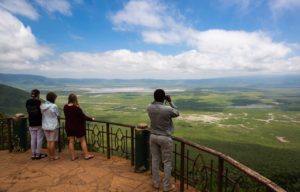
Majira ya mchipuko: Springtime in Swahili

Checking-In at the HOTEL in GERMAN

Hallo und wilkommen bei Spring German. Ich bin Denisa. In this video, I will prepare you for your trip to Germany and everything around German hotels. What chunks do you need to know when checking-in at a German hotel? Let’s find out. Los geht’s!
1. Anreise (arrival)
PAUL Willkommen im Hotel „ Gold”. Haben Sie eine Reservierung? (Welcome to the hotel “Gold”. Do you have a reservation?) DENISA Ja. Auf den Namen “Spring”. Ich habe ein Doppelzimmer für drei Nächte gebucht. (Yes. For the name “Spring”. I booked a double room for 3 nights.) PAUL Ihr Zimmer ist das Zimmer 56. Hier der Schlüssel. Haben Sie weitere Fragen? (Your room is room 56. Here the key. Do you have further questions?) DENISA Ja. Wie lautet das WLAN-Passwort? (Yes. What’s the Wi-Fi password?) PAUL Das Passwort ist ihr Geburtsdatum. Ich wünsche Ihnen einen angenehmen Aufenthalt. (The password is your birthdate. I wish you a pleasant stay.) DENISA Vielen Dank. (Thank you.)
In German hotels, it is still common to receive an actual key for your room, rather than a key card. This is changing in some newer hotels, but traditional keys are still widely used.
Chunk alert!
“Auf den Namen Spring” (on the name Spring) is a chunk you can learn by heart. Of course, with your actual name in it.
Normally we would have to split this up and talk about the grammar behind it if we were in a normal classroom. But the great thing about chunks is that you can just learn them by heart without the grammar behind it.
Auf den Namen… (on the name …) should be your answer as soon as the receptionist asks “Haben Sie eine Reservierung?” (Do you have a reservation?) or “Auf welchen Namen haben Sie reserviert?” (On which name have you reserved the room?)
If you want to learn more about the most common chunks in German, check our free essential German chunking kit. The link is in the description.
Other important phrases you should know bei deiner Ankunft (at your arrival):
- Ich habe ein Doppelzimmer für drei Nächte gebucht. (I booked a double room for 3 nights.)
- Haben Sie weitere Fragen? (Do you have any other questions?)
- Ich wünsche Ihnen einen guten Aufenthalt. (I wish you a pleasant stay.)
2. Frühstück, Mittagessen, Abendessen (breakfast, lunch, dinner)
DENISA Ab wieviel Uhr gibt es Frühstück? (Starting what time is breakfast?) PAUL Frühstück gibt’s von sieben bis zehn Uhr. Mittagessen bieten wir leider nicht an. Aber unser Abendbuffet steht ab 18 Uhr bereit. (Breakfast is from 7 to 10 o’clock. Unfortunately, we don’t serve lunch. But our dinner buffet is ready at 6 p.m.) DENISA Super, vielen Dank. (Great, thank you.)
In German hotels, breakfast is typically a large and important meal, with a wide range of options including:
- Käse (cheese)
- Brot (bread)
- Fleisch (meat)
- Früchte (fruits)
- und mehr (and more)
Breakfast is often included in the room rate and is typically served in a communal breakfast room.
Helpful chunks here are:
- Ist Frühstück mit inbegriffen? (Is breakfast included?)
- Wann gibt es Frühstück / Mittagessen / Abendessen? (What time is breakfast/lunch/dinner?)
- Frühstück gibt es von sieben bis zehn Uhr. (Breakfast is from 7 to 10 a.m.)
3. Aktivitäten buchen (booking activities)
When you are in Germany, you, of course, want to explore the city you are in. Because I am in Bavaria, I will refer to Munich, but Berlin is a must-see, too. Here’s a possible conversation with your receptionist:
DENISA Haben Sie Tipps für Aktivitäten in der Umgebung? (Do you have tips for activities in the area?) PAUL Da gibt es viele. Wie wäre es mit dem Oktoberfest? (There are a lot. How about the Oktoberfest?) DENISA Das klingt gut. Haben Sie einen Reiseführer da? (That sounds good. Do you have a travel guide here?) PAUL Natürlich. Hier bitte. (Of course. Here it is.)
If you want to book activities, you can either ask for a travel guide in your hotel or let them book a trip for you. If you don’t want to book them in your hotel, you can, of course, also book them online through TripAdvisor, GetYourGuide and other platforms, for example.
Helpful phrases here are:
- Können Sie das bitte für mich buchen? (Can you book that for me please?)
- Haben Sie einen Reiseführer da? (Do you have a travel guide here?)
- Haben Sie Tipps für Aktivitäten in der Umgebung? (Do you have some tips for activities in the area?)
4. Andere Anfragen (other requests)
What if you want to change the room because of problems, the towels are missing, or you want to find the smoking area? Here are possible phrases for you:
DENISA Entschuldigung, kann ich bitte ein neues Zimmer haben? Ich habe ein Doppelzimmer gebucht. Ich habe aber ein Einzelzimmer bekommen. (Excuse me, can I have a new room, please? I booked a double room. But I got a single room.) PAUL Natürlich. Entschuldigen Sie die Unannehmlichkeiten. Ich bereite Ihnen sofort ein neues vor. (Of course. Sorry for the inconvenience. I will immediately prepare a new one for you.)
DENISA Entschuldigung? In meinem Zimmer fehlen die Handtücher. (Excuse me? The towels are missing in my room.) PAUL Das darf natürlich nicht sein. Hier haben Sie welche. (Of course that shouldn’t be the case. Here you have some.)
DENISA Entschuldigung, wo finde ich den Raucherbereich? (Excuse me, where do I find the smoking area?) PAUL In unserem Hotel ist das Rauchen leider nicht gestattet. Sie können jedoch gerne vor unserem Hotel rauchen. (In our hotel, smoking is forbidden. But you can smoke in front of our hotel.)
Smoking is generally not allowed in public areas of hotels in Germany, and many hotels have entirely non-smoking rooms. In contrast, some countries (such as Japan) may still allow smoking in certain areas of hotels.
If you have other requests, the important thing to remember is to start with “Entschuldigung” (Sorry) or “Entschuldigen Sie bitte” (Excuse me please). After that, you can say Kann ich bitte … (Can I please… ) and then your request. Some examples:
- Kann ich bitte ein neues Zimmer haben? (Can I please have a new room?)
- Kann ich bitte Handtücher haben? (Can I please have towels?)
- Kann ich bitte meinen Schlüssel bei Ihnen lassen? (Can I please leave my keys with you?)
Another important issue that can appear: Germany uses the Type F electrical plug, which has two round prongs. Make sure to bring an adapter if your devices use a different type of plug. Here you can ask:
- Haben Sie einen Adapter für die Steckdose? (Do you have an adapter for the plug?)

5. Abreise (departure)
PAUL War alles in Ordnung? (Was everything alright?) DENISA Ja, vielen Dank. (Yes, thank you very much.) PAUL Möchten Sie bar oder mit Karte zahlen? (Do you want to pay cash or with card?) DENISA Mit Karte bitte (With card please.) PAUL Kein Problem. Brauchen Sie Hilfe mit ihrem Gepäck? (No problem. Do you need help with your luggage?) DENISA Nein, danke. Das Taxi steht schon vor der Tür. (No, thanks. The taxi is already in front of the door.)
In Germany, check-in times are usually in the mid-afternoon (3-4 pm) and check-out times are typically in the morning (10-11 am). This can be earlier than in some other countries.
Now, let’s go to the airport. But which phrases do you need there? If you click this video, you will learn everything you need to know about German at the airport.
Studying "German as a foreign language and intercultural communication" and giving German lessons, Denisa is not only a pro in German grammar but also familiar with teaching young adults. As a daughter of two immigrants, she had to learn how to communicate between cultures at a young age. With her mom she speaks Slovakian, with her dad Turkish, in university English and French and at home German. Speaking 5 languages, she really is a polyglot! Besides learning and speaking languages, she is also an actress.
Similar Posts

Remember the NOUN GENDER rules in German with these HACKS
In German nouns can have one of three genders: Maskulin, Feminin und Neutrum (masculine, feminine and neuter). The gender manifests itself in the article in front of the word. But when to use which can be a bit tricky. In this video I will show you some basic rules to determine whether a word is…

How to speak about the WEATHER in German?
Wie ist das Wetter? (How is the weather?) Whether we’re talking to our grandma or our friend in Berlin, this remains a standard question. Learn all possible German answers to this question in this video! Ich bin Spring German Lehrerin Brunhild und hier kommen die wichtigsten Wetterbedingungen! (I am Spring German teacher Brunhild and here…

DER? DIE? DAS? The German Articles (how to never forget them!)
VANESSAHow do I translate “the” in German? DENISADa gibt es drei Optionen.(There are three options.) VANESSADrei?(3?) DENISAYes. Der, die and das. Komm. Ich erklär’ es dir.(Come. I’ll explain it to you.) Let’s learn the definite articles and the indefinite articles and what the differences are in this video. Ich bin Spring German Lehrerin Denisa. Bist…

WEIRD German BEHAVIOR: Typical things Germans do
Maybe you have already heard a lot of prejudices about Germans. Nein, nicht das mit dem Bier. (No, not the one with the beer.) I mean weird behavior that is normal in Germany. Maybe our punctuality or the time management in general. In this video, I will show you 6 examples of typical German behavior….

How to ASK for HELP in German (and get people to help)
MARIEEntschuldigung? Mein Auto springt nicht an! Können Sie mir sagen, woran das liegt?(Excuse me? My care won’t jump. Could you tell me, why that is?) VIBEKETut mir Leid, mit Autos kenne ich mich nicht aus.(I’m sorry, I’m not good with cars.) MARIEOkay. Danke trotzdem.(Okay. Thanks anyway.) Whether you got lost, your car broke down or…

You Only need THESE 6 German Greetings
MONIKAHallo! (Hello!) MARIEServus! Wie geht’s?(Hello! How are you?) There are three major factors that determine how to greet someone in German: I’ll show you how to take all these into account when greeting someone. Mein Name ist Brunhild und ich bin deine Spring German Lehrerin. (My name is Brunhild and I am your Spring German…
Request Your Essential Spanish Chunking Kit Here!
54 Essential Spanish Chunks, Bonus Cheat Sheets and a Bonus Spanish Class waiting for you 👇
You have successfully joined our subscriber list.
Request Your Essential German Chunking Kit Here!
Cheat Sheets with essential German chunks waiting for you👇
¡Vamos! Start now
Register for the Free Beginner Course, get your companion workbook and start with the first video lesson right away! 👇
¡Vamos! I’m a Serious Spanish Student
Unlock the Conversation Based Chunking Demo Walkthrough With Spanish Dialogue Now 🙂 👇

I want to learn…
Request your free workshop materials here, privacy overview.

German Travel Phrases With Pronunciation
Before heading off on a holiday, perhaps to a land filled with pretzels and techno clubs, it may come in handy to download some useful German travel phrases onto your brain, along with the “Hot Girl Summer” song you may have already downloaded onto your phone.
German travel phrases are useful for tourists and can help you show a little respect for local German culture. In this post, we're going to look at useful German words & expressions you can use on your holiday here.
Basic German Travel Phrases
We're going to start out with very common German travel phrases and later in the post look at some more advanced expressions you might want to use on your trip. All travel phrases come with audio recordings, so just click on the play button to listen to the pronunciation. 😊
Common German Travel Phrases
Let's start with the absolute basics of German. If you don't have much time left and want to make sure you can at least say Hello , Goodbye and yes in German, have an intense stare at this list:
Introducing Yourself
If you want to introduce yourself in German or have a little bit of small talk , whether it be at a café or at the airport, you might like the following phrases. When using these phrases, make sure that your name is Tom.
If you would like to learn how to talk about yourself more, the first lesson of our free online German lessons is about how to introduce yourself in German .
Locations in German
Phrases for the airport, ordering at restaurants & cafés, travel phrases for the hotel, getting around in german, advanced german travel phrases & idioms.
Now, if you are an intermediate learner, you might not have to learn simple phrases like “Ein Bier bitte” and “Guten Tag” anymore. The phrases in the following list will provide you with helpful building blocks you may use to form more advanced, eloquent sentences about your trip, in German, whilst you tuck into your Spaghettieis.
1. Der Geheimtipp
Have you ever been on holiday and found a restaurant or a sight that is little known, but absolutely amazing? If so, you found a Geheimtipp.
A Geheimtipp is a quality place that has a certain charm in part because it isn’t filled with tourists. The reason for this is because it isn’t so well known; as if the locals have been keeping it a secret from the crowds of tourists.
2. Die Touristenfalle
When on holiday, you may come across certain low-quality tourist attractions and services that are meant to entice those looking for a quick and easy-to-find place to go, in order to pass the time. They may be mediocre and tacky, and are often overpriced.
When you go to such a place, you may even leave feeling like you were given a superficial impression of the culture, and may have noticed that the place was full of tourists, with no locals in sight. Some people enjoy the convenience of such places, but for those who don’t, they can be referred to as: tourist traps.
So, next time you’re on holiday, you might find it useful to remember this term.
PS: Das Beispiel ist ein echter Tipp. Die haben sehr leckere Baumstriezel.
3. In der Umgebung
Sometimes it can be useful to ask around for Geheimtipps in the area you are staying. Die Umgebung is the Kreis district or Bereich area in which one is staying. If you know the whereabouts of some hidden gems in the area, you can kill two birds with one stone by visiting interesting, quality places, without having to travel around the city all day. Or, perhaps for those who do love to explore all the far corners of a given travel destination, it may be enough to just know which little cafe in the area one may visit every morning, for a reliable cup of coffee.
Either way, it may come in handy to remember the phrase: In der Umgebung .
4. sich nach etw. erkundigen
It’s always a good idea to plan ahead of your holiday ☝️; to seek any information that may be useful to you on your trip. Sich nach etw. erkundigen means just this - to seek information / to ask about something, looking for helpful information.
For example, you may have booked a dinner on the beach during your holiday, but would like to ask for more information regarding the exact location. Or, you may have booked your hotel but would like to ask if they offer specific food at the breakfast buffet. To ask for this information, you could say:
5. keine Sekunde vergeuden
Some people love to make the most out of the time they have on holiday. They wake up early, maybe as early as the sun rises, to double check their plan for the day, packed with a number of activities to do and sights to see.
First there’ll be a morning hike through the mountains, before a tour of the city, then a quick train ride to a cheese tasting in the countryside, then back to the city for a dinner that was booked weeks in advance, and a night of dancing at an edgy fetish party held in a medieval castle.
Do you know someone like this? In any case, not a minute should be wasted!
6. etw. durchplanen / etw. bis ins letzte Detail planen
For those who love to plan every detail of their holiday, the phrase “etw. bis ins letzte Detail planen” may come in handy.
There are some holiday destinations that are full of fascinating things to explore and experience. For example, Berlin has an abundance of quality clubs, spas and museums to offer. So, in order to fit in as much as you can in a short amount of time, one might like to plan ahead and get organized.
7. es sich gut gehen lassen
Whilst some people love to make the most out of their holiday by filling it with activities, others are perfectly content with lots of relaxation and restoration.
This may be done by booking a relaxing holiday by the sea, or retreating into nature by spending your trip in a cabin in the woods. What’s important here is the idea of just letting go, or to: sich gut gehen lassen .
8. auf gut Glück
Sometimes, some people enjoy keeping holiday planning to a bare minimum, as in not planning much at all and letting each day bring new, spontaneous adventures.
For example, you may book a flight to a remote destination you’ve never visited before, just like that. No plan. No wishlist. Just your passport and, hopefully, the eyes of god watching over you. Whether it’s a whole holiday left unplanned, or perhaps just a day to see where your mood takes you, a helpful expression to describe this intentional spontaneity is: auf gut Glück .
9. jdn. auf die Folter spannen
Have you ever booked a holiday for your partner or friend, but didn’t tell them the destination until the day you took your flight?
Or have you ever planned a special day, or activity during a trip abroad, that your partner or friend knew about except for some really important details, like where the event is being held, or what type of food to expect?
If you have, then you have kept someone waiting in suspense , or you intend to excite somebody by purposefully hiding details about your plan. There is a phrase in German that expresses this: jdn. auf die Folter spannen .
10. Urlaub auf Balkonien machen
This phrase is for those of us who, once in a while, enjoy a good holiday spent in the comfort of our own home… or, yes, balconies.
As this phrase quite literally suggests, “Urlaub auf Balkonien machen”, means to relax and enjoy what one has to offer at home already, rather than to travel somewhere else.
So, for example, many people, perhaps against their wishes, would have spent their recent holidays in "Balkonien", due to the Corona restrictions. Many people living in Berlin also enjoy their holidays in "Balkonien" over the summer, as the city is arguably most alive during this season.

Explore diverse articles on German culture, supported by grammar lessons, audio recordings, and interactive exercises.
- German Listening Comprehension
- Free Online German Lessons (A1 / A2)
- Simple German Stories (A1 / A2)
- Easy German Books For Beginners
- Intermediate German Podcast

Guide to German Travel Phrases for Tourists and Travelers

When you’re traveling outside of your home country, there’s a very good chance that you won’t speak the language of that country. For that reason, it can be really helpful to learn some basic German travel phrases before going to Germany, Austria, or even parts of Switzerland, Belgium, and Luxemburg.
In this article, we’ll provide you with German phrases for tourists that will help you survive basic daily situations.
For instance, when traveling to the center of Europe, you’ll probably have to take a train at some point. (And if you don’t have to take one, we suggest you take one anyway. This experience is part of traveling to Germany.)
Once you’ve bought your ticket at Deutsche Bahn (the German railway company) and you’re ready to discover a new city, the conductor may want to see your ticket or ask some questions. If you didn’t know, even though this is an international company, their staff isn’t one-hundred percent trained to speak English. Trust us, you don’t want to come into this situation unprepared. You’ll need to know phrases for travelers in German.
But no worries. To prevent you from this embarrassing situation, we have free courses for beginner , intermediate , and advanced students. You can even find free bonus material on our website.
Without a lot of hustle and bustle, let’s just get straight to it. Here are the most useful German phrases for travelers.
Table of Contents
- Why Should You Learn German?
- German Pronunciation Specialities
- Basic Questions and Their Perfect Answers
- Restaurants and Ordering Food
- At the Hotel
- Locations and Transportation
- Working Through Communication Barriers
- How GermanPod101 Can Help You Master Urgent Travel Situations

1. Why Should You Learn German?

We know that learning another language can be frustrating and hard, and this may be more true of German than some other languages. But here are some facts that should convince you to learn German:
- Studying in Germany is free – While you have to pay for a college education in most countries, studying in Germany is free of charge.
- Germany is Export King – Germany is the country with the biggest export market in Europe , and the third biggest worldwide.
- Easy for native English speakers – English and German belong to the same language family , which makes it easy to learn (and vice versa).
- Startup hotspot – The startup scene is growing rapidly in the cities of Berlin, Munich, Cologne, and Hamburg.
Knowing even just the basic German travel phrases for beginners can greatly help you make the most of your time in Germany.
2. German Pronunciation Specialities

Before we move on to learning German phrases for travelers, you should have a little information on German pronunciation specialties.
As already mentioned, German is really close to the English language, which makes it easy for good English speakers to adapt to German. But there are some combinations that require special effort in terms of pronunciation. On the left, you see the letter combination; on the right, an English equivalent to that sound.
3. Greetings

Now, onto the most basic German words and phrases for travellers: Greetings. These are the most common German travel phrases, and always important to have at the ready.
- Hallo! Hello!
- Guten Morgen! Good morning!
- Guten Tag! Good day!
- Guten Abend. Good evening!
- Bitte. Please.
- Danke. Thanks. / Thank you.
- Tschüss. Bye.
- Auf Wiedersehen. Goodbye.
- Ich heiße … My name is …
- Ich bin in Deutschland für … Wochen. I am in Germany for … weeks.
- Ich komme aus … I am from …
- Wie geht’s? How are you?
- Mir geht es gut. I am fine.
4. Basic Questions and Their Perfect Answers

To help you out with the pronunciation and some practice for these questions, you can find a free lesson on our website . Also feel free to click on the links in the chart; they’ll take you to relevant German vocabulary lists on our site to help you answer the questions yourself!
5. Restaurants and Ordering Food
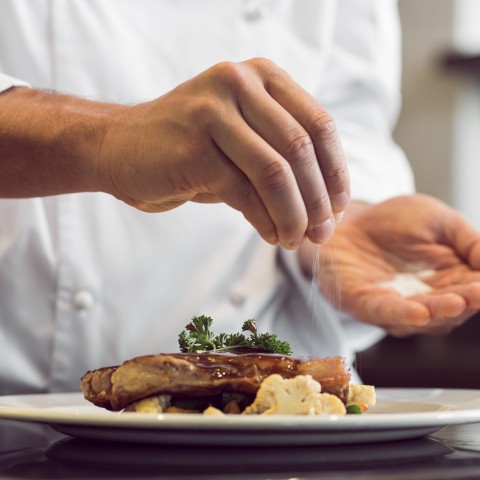
- Einen Tisch für zwei/drei/vier Personen, bitte. A table for two/three/four persons, please.
- Wir haben eine Reservierung. We have a reservation.
- Die Speisekarte, bitte. The menu, please.
- Ich hätte gerne das Steak mit Pommes. I would like the steak with fries.
- Haben Sie ein veganes Gericht? Do you have a vegan meal?
- Können Sie etwas empfehlen? Can you recommend something?
- Noch ein Glas Wasser, bitte. Another glass of water, please.
- Getrennt oder zusammen? Together or separately?
- Guten Appetit. Enjoy your meal.
- Die Rechnung, bitte. The check, please.
We have a complete vocabulary list for you, with words for the restaurant.
6. At the Hotel
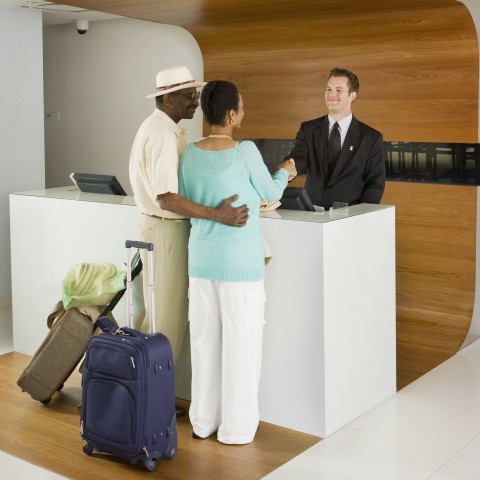
- Haben Sie noch freie Zimmer? Do you have free rooms available?
- Wie viel kostet ein Zimmer pro Nacht? How much is a room per night?
- Ich möchte ein Zimmer reservieren. I would like to reserve a room.
- Ist das Frühstück inklusive? Is the breakfast inclusive?
- Zimmerservice. Room service.
- Um wie viel Uhr ist Check-Out? At what time is the check out?
7. Locations and Transportation

1- Asking for and Giving Directions
2- transportation.
- Wo ist die Haltestelle? Where is the station?
- Wo kann ich eine Fahrkarte kaufen? Where can I buy a ticket?
- Fährt dieser Zug / Bus nach … ? Is this train / bus going to … ?
- Können Sie es mir auf der Karte zeigen? Can you show me on the map?
- Muss ich umsteigen? Do I have to change?
Again, we’ve prepared for you a free vocabulary list with words that you can use when asking for directions and locations.
8. Working Through Communication Barriers
Just in case you don’t know what to say or you didn’t understand anything someone just said to you, here are some phrases that can get you out of this sticky situation:
- Sprechen Sie Englisch? Do you speak English?
- Können Sie das bitte nochmal wiederholen? Could you please repeat that again?
- Ich spreche kein Deutsch. I don’t speak German.
- Ich verstehe Sie nicht. I don’t understand you.
- Können Sie das bitte übersetzen? Could you please translate this for me?
- Hilfe! Help!
Maybe you’re asking yourself if you can go to Germany without speaking any German. Sure you can, you can live there even without speaking the language.
Getting along as a tourist with just English will be more than easy for you. Everybody knows at least the basics of English. And as long as they can see that you’re patient, they’ll be patient with you.
9. How GermanPod101 Can Help You Master Urgent Travel Situations
In this article, we showed you the most helpful phrases that you can use on your travels. We covered some basic pronunciation specialities of the German language, greetings, numbers, situations in a restaurant and hotel, and asking for directions.
While you can survive traveling Germany with only English, Germans will be really grateful when they see that you’re trying to speak their language. We know that German is a hard language, but to see someone trying makes us happy.
This article was just the beginning; take a look at our free resources . But if you really want to get to it and become a good German speaker, then we can offer you a private teacher to help you learn based on your needs and goals with the German language.
Before you go, let us know in the comments how you feel about using the useful German travel phrases outlined in this article. Feel free to reach out with questions in the comments below, and know that the more you practice and use these essential German travel phrases, the easier it will become.
Or sign up using Facebook
Got an account? Sign in here

How To Say ‘Thank you’ in German

Hi, What’s Up, and Beyond: How to Say Hello In German

How to Say I Love You in German – Romantic Word List

The 5 Go-To German Podcasts for Language Learners

Intermediate German Words to Level Up Your Vocab

German Animal Names: The Ultimate Vocabulary List
How to celebrate april fools’ day in german.
- Forum Spotlight
- Scheduled Maintenance
- German Holidays
- German Dictionary
- German Language
- German Translation
- German: one word at a time
- Guest Bloggers
- Advanced German
- German Alphabet
- German Grammar
- German Lessons
- German Online
- German Phrases
- German Podcasts
- German Words
- Tips & Techniques
- Life in Germany
- Living in Germany
- Media Coverage
- News in German-speaking countries
- Feature Spotlight
- Speak German
- Success Stories
- Teaching German
- Team GermanPod101
- Uncategorized
- Word of the Day
- Immigration, Visas
Copyright © 2024 Innovative Language Learning. All rights reserved. GermanPod101.com Privacy Policy | Terms of Use . This site is protected by reCAPTCHA and the Google Privacy Policy and Terms of Service apply.

Wednesday, September 5, 2018
German hotel vocabulary and german phrases for hotels.
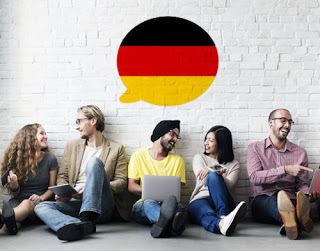
Top 30 Useful German Phrases for Hotel Conversations


Essential German Travel Phrases for Safe and Enjoyable Travels | Travel Guide
Table of Contents
Mastering German Travel Phrases: From Safe Travels to Everyday Conversations
Safe travels and farewell phrases.
- Safe travels – Gute Reise.
- Have a safe journey – Hab eine sichere Reise.
- Bon voyage – Gute Fahrt.
- Wishing you a safe journey – Ich wünsche dir eine sichere Reise.
- Travel safely – Reise sicher.
- Farewell – Lebewohl.
- Goodbye and take care – Auf Wiedersehen und pass auf dich auf.
- See you soon – Bis bald.
- Have a great trip – Hab eine tolle Reise.
- May your journey be smooth – Möge deine Reise reibungslos verlaufen.
At the Hotel
- I have a reservation – Ich habe eine Reservierung.
- Could I get a different room? – Könnte ich ein anderes Zimmer bekommen?
- Is breakfast included? – Ist das Frühstück inbegriffen?
- Can I have the Wi-Fi password? – Kann ich das WLAN-Passwort haben?
- Could you recommend a good restaurant nearby? – Können Sie ein gutes Restaurant in der Nähe empfehlen?
At the Airport
- Where is the check-in counter? – Wo ist der Check-in Schalter?
- Is this the right gate for flight to [destination]? – Ist das das richtige Gate für den Flug nach [Ziel]?
- How long is the delay? – Wie lange ist die Verspätung?
- Can I get an aisle seat? – Kann ich einen Gangplatz bekommen?
- Where can I claim my luggage? – Wo kann ich mein Gepäck abholen?
Transportation
- One ticket to [destination], please – Ein Ticket nach [Ziel], bitte.
- Which way to the train station? – Welcher Weg führt zum Bahnhof?
- How much is the fare? – Wie viel kostet die Fahrkarte?
- Can you stop here? – Können Sie hier anhalten?
- Is this bus going to [destination]? – Fährt dieser Bus nach [Ziel]?
Emergency Phrases
- I need a doctor – Ich brauche einen Arzt.
- Can you help me, please? – Können Sie mir bitte helfen?
- I am lost – Ich habe mich verirrt.
- I need help with my luggage – Ich brauche Hilfe mit meinem Gepäck.
- Call the police – Rufen Sie die Polizei.
Cultural Tips and Etiquette: Tips for Travelers
- Punctuality : In German culture, punctuality is highly valued. Whether it’s a train departure, a restaurant reservation, or a casual meeting, being on time is considered a sign of respect and reliability.
- Formal Greetings : Germans tend to use formal titles and surnames until explicitly invited to use first names. It’s customary to greet with a firm handshake and maintain direct eye contact.
- Quiet Sundays : Sundays are considered a day of rest in many parts of Germany, with most shops closed. It’s also common for there to be quiet hours, so it’s important to keep noise to a minimum, especially in residential areas.
- Recycling and Environmental Consciousness : Germany is known for its commitment to environmental sustainability. Familiarize yourself with the local recycling system, which often includes separate bins for paper, glass, packaging, and organic waste.
- Cash Transactions : While card payments are becoming more common, cash is still widely used, especially in smaller shops, bakeries, and cafes. It’s a good idea to carry some cash.
- Tipping : Tipping is customary in restaurants, typically around 5-10% of the bill, unless service is included. It’s also common to round up to the nearest euro for taxi drivers and other service providers.
- Dining Etiquette : When dining, wait to be seated and for everyone to receive their meal before starting. Saying “Guten Appetit” (Enjoy your meal) is common courtesy. Keep your hands visible, but elbows off the table.
- Public Transport Etiquette : On buses and trains, it’s polite to offer your seat to elderly, pregnant, or disabled passengers. Keep conversations at a moderate volume and make way for boarding and alighting passengers.
- Privacy and Directness : Germans value privacy and direct communication. While they may seem reserved at first, they appreciate straightforwardness in conversations without the need for small talk.
- Cultural Heritage : Take the time to appreciate Germany’s rich cultural heritage. Visit museums, historical sites, and monuments, and be respectful of these cultural assets.
By keeping these cultural tips in mind and using the provided phrases, travelers can navigate their way through German-speaking countries with greater ease and respect for local customs. This not only enriches the travel experience but also fosters positive interactions with local residents.
These phrases cover a wide range of situations that travelers might encounter, from wishing someone well on their journey to navigating hotels, airports, and transportation, as well as handling emergencies. Having these phrases at hand can enhance the travel experience in German-speaking countries by facilitating smoother communication.
For More Info : https://travel.state.gov/content/travel.html
Easy German Phrases for Hotels, Shopping, and Eating Use
- Heather Marie Kosur
- Categories : German language study guides & tips
- Tags : Homework help & study guides
Quick German Phrases for Travel
Here are a helpful few phrases for that long stopover in a German-speaking nation or an overnight stay before you fly to your actual destination. Print out the article, tuck it in your carry-on bag, and be prepared to shop, eat, and rent a hotel room in German.
Use the following German vocabulary and phrases when booking or staying in a hotel:
- I have a reservation – Ich habe eine Reservierung
- Do you have…? – Haben Sie?
- a single room – ein Einzelzimmer
- a double room – ein Doppelzimmer
- I’m sorry – Es tut mir leid
- We are booked full – Wir sind voll
- with a bathroom – mit Bad
- with a shower – mit Dusche
- breakfast included – mit Fruehstueck
- without – ohne
- I (we) stay… – Ich (wir) bleibe(n)…
- one night – eine Nacht
- one week – eine Woche
- My departure is… – Ich reise am…ab
- tomorrow – morgen
- today – heute
- My luggage – Mein Gepaeck
- This is broken/doesn’t work – Das ist kaputt
- Where is…? – Wo ist…?
- the dining room – der Speisesaal
- the powder room – die Toilette
- Ladies – Damen
- Gents – Herren
- I pay with… – Ich zahle mit…
- credit card – Kreditkarte
Restaurants
The following phrases and vocabulary is useful when eating out in a restaurant in a German-speaking area:
- A table for…. – Ein Tisch fuer
- three – drei
- four – vier
- please – bitte
- thank you – danke
- The menu please – die Karte bitte
- The food is… – das Essen ist…
- cold – kalt
- delicious – sehr gut
- too much – zu viel
- salt – Salz (n)
- pepper – Pfeffer (m)
- Waiter! – Herr Ober!
Remark: Waitresses were, regardless of age, addressed as Fraeulein (Miss). However, during the past few years, the word has disappeared from the German language because it is considered discriminating and politically incorrect. So, when summoning a waitress, just make a hand signal.
- the bill (check) please – die Rechnung bitte
Remark: You tip if you are particularly pleased with the service. Contrary to in the United States, tax, tips, and service are included in the bill. Tipping is a nice gesture but not a must in Germany.
- a beer – ein Bier
- a glass of wine – ein Glas Wein
- white – weiss
- a bottle of wine – eine Flasche Wein
- I am a vegetarian – Ich bin Vegetarier
- Do you have a child portion or special dish for kids? – Haben Sie einen Kinderteller?
- Do you have a child seat? – Haben Sie einen Kinderstuhl?
- child – Kind
- children – Kinder
- Are dogs allowed? – Sind Hunde erlaubt?
Remark: Smoking is not allowed in any German restaurant. Questions about smoking areas and ashtrays are no longer relevant.
Shops and Market
When shopping in Germany, use the following words and phrases:
- I want, I would like… – Ich moechte…
- a dress – ein Kleid
- a skirt – einen Rock
- a pair of pants – eine Hose
- shoes – Schuhe (f)
- Can I try this on? – Kann ich das probieren?
- Where is the changing room? – Wo ist die Umkleide?
- How much does that cost? – Wieviel kostet das?
- too expensive – zu teuer
- I am size… – Ich habe Groesse…
- cosmetics – Kosmetika (f)
- more – mehr
- less – weniger
- enough – genug
- a slice – eine Scheibe
- a piece – ein Stueck
- a pair – ein Paar
- one pound – ein Pfund
- half pound – ein halbes Pfund
- Is it fresh? – it es frisch?
- frozen – gefroren
- meat – Fleisch (n)
- fruit – Obst (n)
- fish – Fisch (m)
- vegetables – Gemuese (n)
- egg – Ei (n)
- sausage – Wurst (f)
- cheese – Kaese (m)
- check out – Kasse (f)
Remark: Price tags in Germany already include the sales tax. Weights and measures are metric. Also, in most German supermarkets, one cent or more is charged for each plastic bag. Recycle or ask for paper bags.
For additional vocabulary and phrases for traveling in a German-speaking country, check out “ German Travel Vocabulary Lesson Plan and Activity .”
LearnGermanOnline.org
Choose from dozens of free online resources for german learners.

German Language for Travellers: Learn German Travel Phrases
Last updated on April 4, 2024
If you are planning a short holiday stay or a business trip to Germany you do not need to learn any German as most people you are going to meet will speak some English anyway. But, it will not hurt if you learn some basic German phrases, such as greetings, just to sound nice. However, if you are traveling to Germany or any other German-speaking country more often, learning a few essential German travel phrases and expressions may help you get along in situations when there are no English speakers around. Below you will find an overview of free Internet resources that largely focus on German for travellers.
German for Tourists on YouTube
- German Phrases for Travelers is a 20 min video that will teach you the very basics of the German language that any foreigner travelling around Germany will find useful.
- Basic German Travel Phrases from expertvillage is a collection of fourteen youtube videos that will not only teach you essential German travel phrases like those used when greeting people, asking for directions, travelling through airports, seeking accommodation, ordering in a restaurant, renting a car or expressions used in emergency situations, but will also give you a couple of useful travel tips on must-see German locations for foreign visitors.
Interactive Online Courses for Travellers to Germany
- LingoHut offers a free German course suitable for tourists as most of their 109 lessons focus on travel topics such as understanding directions, airport and hotel conversations, moving around town, sightseeing, shopping, ordering food at a restaurant, etc. You will learn basic vocabulary and phrases related to each topic. Each lesson includes vocabulary training, flashcards, and matching, tic-tac-toe and concentration games as well as a listening game.
- Goethe Verlag has prepared a German course for beginners as part of their series called 50 languages. This course contains many lessons that frequent travellers to German-speaking countries may find useful. In the first 80 or so lessons you will learn basic German phrases related to the most common conversational topics whereas the remaining lessons provide examples of sentences illustrating the use of German grammar (this part may be difficult to understand without further explanation, though). You can access this course online for free, download all of its 100 lessons as mp3 files or try it on your mobile device. However, only the first 30 lessons are free in the mobile application. Complete course for portable devices will cost you $2.99.
German for Travellers on Mobile Apps
- Bravolol is a mobile application for foreign visitors to Germany who wish to learn some basic German phrases and vocabulary most frequently used when traveling around. You will be listening to the speaking parrot and repeating the phrases and expressions you heard. Whenever needed you can search for phrases by keywords. This app can also be used offline. The basic version is free but the full version will cost you $4.99.
German Travel Phrases on PDFs
- German for Confident Travel is a free downloadable German travel phrasebook in the PDF format. It contains hundreds of German phrases with English translations and explanations on when to use each phrase. This phrasebook also provides pronunciation guidance for English speakers. The main focus is on travel-related topics such as greetings, food, accommodation, shopping, transportation and socializing.
Social Platforms for Travellers
- PolyglotClub is a social platform where people can find conversation partners in foreign countries who are native speakers in the language they are trying to learn. However, this platform is also used by travellers who wish to connect with natives in the country they are planning to visit. They can ask them all sorts of questions about their country, language and culture to become more familiar with the place before they leave on a trip. Likewise, travellers can ask their language exchange partners before they go on a trip to teach them correct vocabulary to be able to take a taxi, check at a hotel, ask for directions or order meals and drinks at a restaurant.
- Interpals brings together people from all over the world who are learning foreign languages and/or are looking for travel buddies abroad that will show them around when visiting their town. Although this platform is not specifically designed for teaching travel phrases, it is very likely that these will be some of the first expressions you will learn before and during your visit to another country.
Other Great German Learning Resources for Travelers
Also, do not forget to check out our section on German beginner courses where you will certainly find additional lessons that teach vocabulary and phrases you can use on your next trip to Germany or any other German-speaking country. Alternatively, for making friends in foreign countries who can help you learn their native language and introduce you to their culture see the list of free language exchanges . Your German language exchange partner will not only help you learn some basic German travel phrases but may also want to meet you in person and show you around their town next time you are visiting Germany.
Travel German FAQs
‘Ja’ (yaa) and ‘Nein’ (nain).
The first words you may want to learn before your trip to Germany should include: ‘Ja’ (yes) and ‘Nein’ (no), greetings such as ‘Hallo’ (hello), ‘Guten Tag’ (good day), ‘Auf Wiedersehen’ (good bye) and a couple of words to sound polite such as ‘Bitte’ (please), ‘Danke’ (thank you), ‘Entschuldigung’ (sorry, though many Germans also say sorry) and ‘Gesundheit’ (bless you).
‘Bitte’ is one of the most frequent words you will hear when visiting Germany and usually means ‘please’ or ‘yes, please’. As an interjection it can also translate as ‘you are welcome’, ‘here you go’ or ‘go ahead’. ‘Die Bitte’ is also a noun meaning a ‘plea’, ‘request’ or an ‘appeal’.
‘Bitte schön’ are actually two words used most often as a polite response to someone saying ‘Danke schön’ or ‘Danke sehr’ (i.e., different ways of saying thank you such as ‘many thanks’ or ‘thanks a lot’) and it means ‘you are welcome’, ‘my pleasure’ or ‘not at all’.
The most common casual German greetings are ‘Grüß dich!’ and ‘Hallo!’.
The German word for tip is ‘Trinkgeld’ which literally means ‘drink money’, suggesting that you usually tip the waiter. It is a kind of gratuity, not a service charge. Hence, if you were happy with the service, you round up the bill by adding up to 10% extra. But, if you were not satisfied, there is absolutely no reason to leave a tip.
You may hear people say ‘gerne’ quite often while travelling in Germany, especially as a response to saying ‘thank you’ to them. It is a polite expression that translates as ‘gladly’ or ‘with pleasure’, meaning that the person enjoyed helping you.
Genau literally means “exact(ly)”, “accurate(ly)” or “precise(ly)”. However, its other meanings are “that’s right”, “yes, that’s it”, “yes, that’s correct” or simply “right” or “yes”. This broader meaning is the main reason why German speakers use the word “genau” so much.
Free German Travel Phrasebook
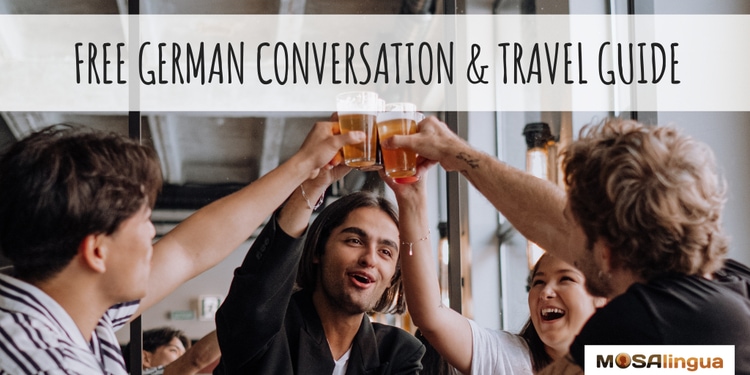
Table of contents
Get your free german phrasebook sent right to your inbox, what’s inside your free german travel guide, 🙋♀️ the basics, 🌭 eating and drinking, 🏠 accommodation, 🚃 transportation, 🛍 shopping, 🏀 hobbies/fun, 🥂 socializing, 🗣 conversation aids, 🌤 time and weather, 💻 telecommunications, 🚨 emergencies, download our free english-to-german phrasebook, take your german a step further.
To get your free German phrasebook PDF and start learning essential German vocabulary for travel and other common scenarios, please enter your info below and be sure to click “I want my free kit.” (Why a kit? Our German conversation guide is just one of the resources in the free MosaLingua Language Learning Kit, a complete set of goodies for independent learners. You’ll love the rest of the resources in the kit, too, and it’s all free of charge! 😉):
This eBook contains 45 pages and 10 00+ words and phrases in German, with English translations of course. It is organized by travel – related themes and ordered according to frequency of use (from the most commonly used vocabulary to more specialized terms).
If you’re planning a trip to Germany, Austria, or Switzerland, or if you simply want to improve your conversational German, you’ll want to have this German phrasebook by your side!
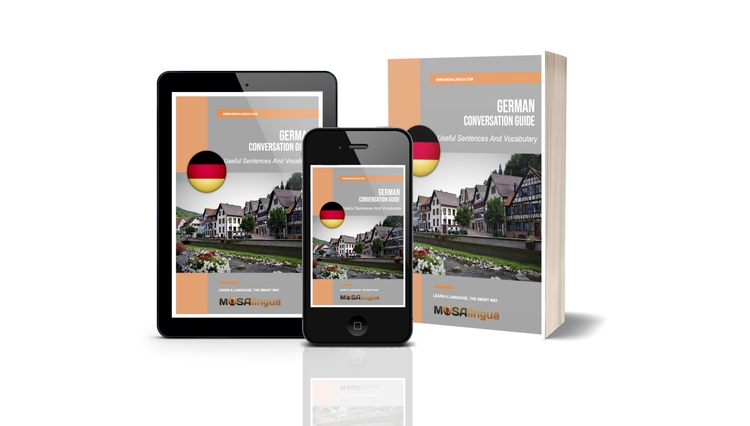
Topics in Your German Travel Guide
To give you an idea of the themes covered in our phrasebook, here are some of the topics you’ll be able to talk about with the help of this German travel guide :
- Polite phrases
- The essentials
- Starting a conversation
- Eating out, going to restaurants
- Meat and fish
- At a hostel
- Household chores
- Daily life at home
- Asking for things
- Going camping
- Public transportation
- Asking for directions
- The cardinal points
- Traveling by car
- At the airport
- Buying and negotiating
- Buying food
- Going shopping
- Arts and crafts
- Banking and dealing with money
- Outdoor activities
- Cultural and religious differences
- At the beach
- Meeting new people
- Going out, nightlife
- Feelings and opinions
- Common mistakes and difficulties
- Expressing agreement and disagreement
- Ending a conversation
- Talking about your love life
- Personality traits
- The human body
- Physical appearance
- At the barbershop or hair salon
- Occupations
- Talking about the future
- Temporal phrases
- Making phone calls
- Electronic devices
- Road accidents
- Important signs
All of the German content above and more is available to you for free! To download your phrasebook, just click the “I want my free kit” button below. Then, keep an eye on your inbox for your free German Travel Phrasebook PDF (we promise not to send you any spam, you have our word!):
If you want to learn more about the German language, its vocabulary, grammar, culture, and more, have a look around our blog . If you’re not sure where to start, here are a few popular articles and guides our readers love:
- Dive into German grammar : it’s easy with our free grammar guide
- Tips and tools to learn German, fast
- To find tools to help you with other important skills, check out our guide to the best online German resources
- And for much, much more vocabulary, and a scientifically proven method for learning it, download the MosaLingua Learn German app .
Happy learning and hope to see you again soon!
- Articles >
The Moscow Metro Museum of Art: 10 Must-See Stations
There are few times one can claim having been on the subway all afternoon and loving it, but the Moscow Metro provides just that opportunity. While many cities boast famous public transport systems—New York’s subway, London’s underground, San Salvador’s chicken buses—few warrant hours of exploration. Moscow is different: Take one ride on the Metro, and you’ll find out that this network of railways can be so much more than point A to B drudgery.
The Metro began operating in 1935 with just thirteen stations, covering less than seven miles, but it has since grown into the world’s third busiest transit system ( Tokyo is first ), spanning about 200 miles and offering over 180 stops along the way. The construction of the Metro began under Joseph Stalin’s command, and being one of the USSR’s most ambitious building projects, the iron-fisted leader instructed designers to create a place full of svet (radiance) and svetloe budushchee (a radiant future), a palace for the people and a tribute to the Mother nation.
Consequently, the Metro is among the most memorable attractions in Moscow. The stations provide a unique collection of public art, comparable to anything the city’s galleries have to offer and providing a sense of the Soviet era, which is absent from the State National History Museum. Even better, touring the Metro delivers palpable, experiential moments, which many of us don’t get standing in front of painting or a case of coins.
Though tours are available , discovering the Moscow Metro on your own provides a much more comprehensive, truer experience, something much less sterile than following a guide. What better place is there to see the “real” Moscow than on mass transit: A few hours will expose you to characters and caricatures you’ll be hard-pressed to find dining near the Bolshoi Theater. You become part of the attraction, hear it in the screech of the train, feel it as hurried commuters brush by: The Metro sucks you beneath the city and churns you into the mix.
With the recommendations of our born-and-bred Muscovite students, my wife Emma and I have just taken a self-guided tour of what some locals consider the top ten stations of the Moscow Metro. What most satisfied me about our Metro tour was the sense of adventure . I loved following our route on the maps of the wagon walls as we circled the city, plotting out the course to the subsequent stops; having the weird sensation of being underground for nearly four hours; and discovering the next cavern of treasures, playing Indiana Jones for the afternoon, piecing together fragments of Russia’s mysterious history. It’s the ultimate interactive museum.
Top Ten Stations (In order of appearance)
Kievskaya station.
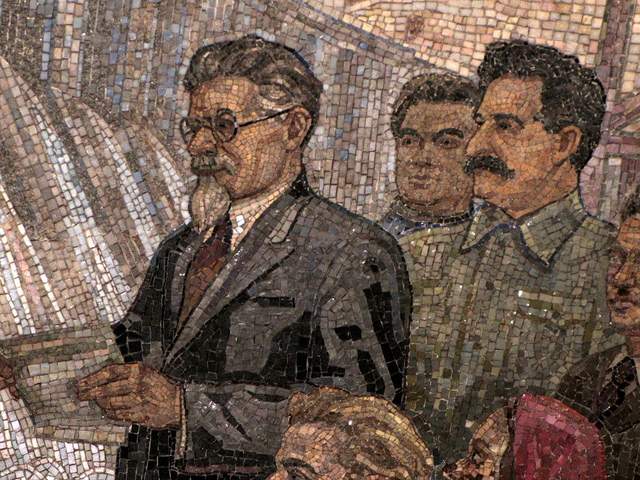
Kievskaya Station went public in March of 1937, the rails between it and Park Kultury Station being the first to cross the Moscow River. Kievskaya is full of mosaics depicting aristocratic scenes of Russian life, with great cameo appearances by Lenin, Trotsky, and Stalin. Each work has a Cyrillic title/explanation etched in the marble beneath it; however, if your Russian is rusty, you can just appreciate seeing familiar revolutionary dates like 1905 ( the Russian Revolution ) and 1917 ( the October Revolution ).
Mayakovskaya Station
Mayakovskaya Station ranks in my top three most notable Metro stations. Mayakovskaya just feels right, done Art Deco but no sense of gaudiness or pretention. The arches are adorned with rounded chrome piping and create feeling of being in a jukebox, but the roof’s expansive mosaics of the sky are the real showstopper. Subjects cleverly range from looking up at a high jumper, workers atop a building, spires of Orthodox cathedrals, to nimble aircraft humming by, a fleet of prop planes spelling out CCCP in the bluest of skies.
Novoslobodskaya Station
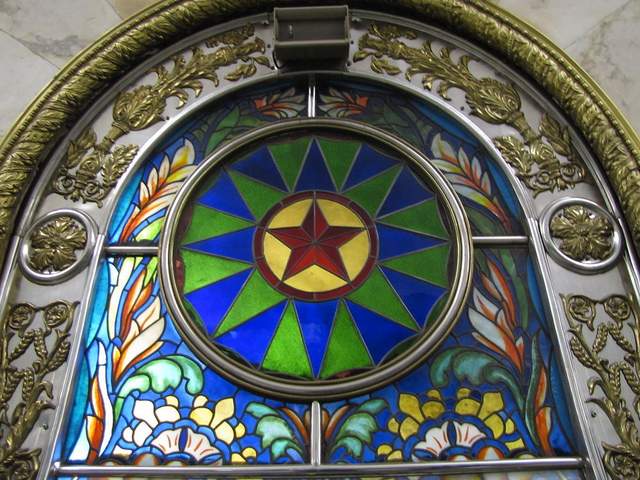
Novoslobodskaya is the Metro’s unique stained glass station. Each column has its own distinctive panels of colorful glass, most of them with a floral theme, some of them capturing the odd sailor, musician, artist, gardener, or stenographer in action. The glass is framed in Art Deco metalwork, and there is the lovely aspect of discovering panels in the less frequented haunches of the hall (on the trackside, between the incoming staircases). Novosblod is, I’ve been told, the favorite amongst out-of-town visitors.
Komsomolskaya Station
Komsomolskaya Station is one of palatial grandeur. It seems both magnificent and obligatory, like the presidential palace of a colonial city. The yellow ceiling has leafy, white concrete garland and a series of golden military mosaics accenting the tile mosaics of glorified Russian life. Switching lines here, the hallway has an Alice-in-Wonderland feel, impossibly long with decorative tile walls, culminating in a very old station left in a remarkable state of disrepair, offering a really tangible glimpse behind the palace walls.
Dostoevskaya Station

Dostoevskaya is a tribute to the late, great hero of Russian literature . The station at first glance seems bare and unimpressive, a stark marble platform without a whiff of reassembled chips of tile. However, two columns have eerie stone inlay collages of scenes from Dostoevsky’s work, including The Idiot , The Brothers Karamazov , and Crime and Punishment. Then, standing at the center of the platform, the marble creates a kaleidoscope of reflections. At the entrance, there is a large, inlay portrait of the author.
Chkalovskaya Station
Chkalovskaya does space Art Deco style (yet again). Chrome borders all. Passageways with curvy overhangs create the illusion of walking through the belly of a chic, new-age spacecraft. There are two (kos)mosaics, one at each end, with planetary subjects. Transferring here brings you above ground, where some rather elaborate metalwork is on display. By name similarity only, I’d expected Komsolskaya Station to deliver some kosmonaut décor; instead, it was Chkalovskaya that took us up to the space station.
Elektrozavodskaya Station
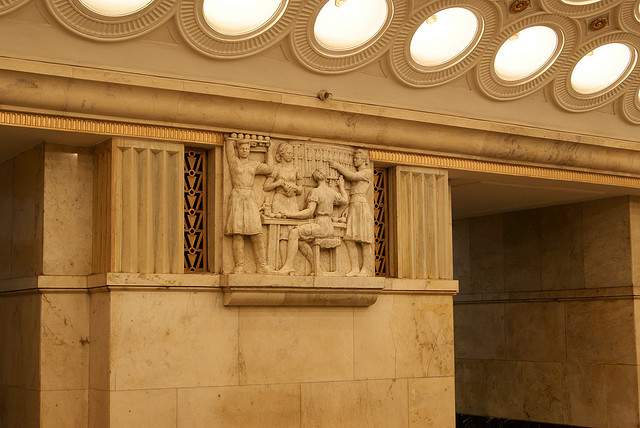
Elektrozavodskaya is full of marble reliefs of workers, men and women, laboring through the different stages of industry. The superhuman figures are round with muscles, Hollywood fit, and seemingly undeterred by each Herculean task they respectively perform. The station is chocked with brass, from hammer and sickle light fixtures to beautiful, angular framework up the innards of the columns. The station’s art pieces are less clever or extravagant than others, but identifying the different stages of industry is entertaining.
Baumanskaya Statio
Baumanskaya Station is the only stop that wasn’t suggested by the students. Pulling in, the network of statues was just too enticing: Out of half-circle depressions in the platform’s columns, the USSR’s proud and powerful labor force again flaunts its success. Pilots, blacksmiths, politicians, and artists have all congregated, posing amongst more Art Deco framing. At the far end, a massive Soviet flag dons the face of Lenin and banners for ’05, ’17, and ‘45. Standing in front of the flag, you can play with the echoing roof.
Ploshchad Revolutsii Station
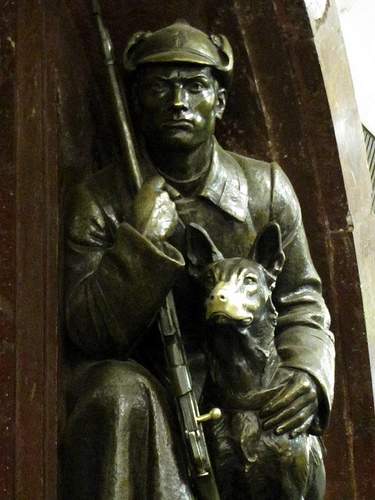
Novokuznetskaya Station
Novokuznetskaya Station finishes off this tour, more or less, where it started: beautiful mosaics. This station recalls the skyward-facing pieces from Mayakovskaya (Station #2), only with a little larger pictures in a more cramped, very trafficked area. Due to a line of street lamps in the center of the platform, it has the atmosphere of a bustling market. The more inventive sky scenes include a man on a ladder, women picking fruit, and a tank-dozer being craned in. The station’s also has a handsome black-and-white stone mural.
Here is a map and a brief description of our route:
Start at (1)Kievskaya on the “ring line” (look for the squares at the bottom of the platform signs to help you navigate—the ring line is #5, brown line) and go north to Belorusskaya, make a quick switch to the Dark Green/#2 line, and go south one stop to (2)Mayakovskaya. Backtrack to the ring line—Brown/#5—and continue north, getting off at (3)Novosblodskaya and (4)Komsolskaya. At Komsolskaya Station, transfer to the Red/#1 line, go south for two stops to Chistye Prudy, and get on the Light Green/#10 line going north. Take a look at (5)Dostoevskaya Station on the northern segment of Light Green/#10 line then change directions and head south to (6)Chkalovskaya, which offers a transfer to the Dark Blue/#3 line, going west, away from the city center. Have a look (7)Elektroskaya Station before backtracking into the center of Moscow, stopping off at (8)Baumskaya, getting off the Dark Blue/#3 line at (9)Ploschad Revolyutsii. Change to the Dark Green/#2 line and go south one stop to see (10)Novokuznetskaya Station.
Check out our new Moscow Indie Travel Guide , book a flight to Moscow and read 10 Bars with Views Worth Blowing the Budget For
Jonathon Engels, formerly a patron saint of misadventure, has been stumbling his way across cultural borders since 2005 and is currently volunteering in the mountains outside of Antigua, Guatemala. For more of his work, visit his website and blog .

Photo credits: SergeyRod , all others courtesy of the author and may not be used without permission
- Find & Reserve
- Special Offers
- Meetings & Events
- Our Credit Cards
- About Marriott Bonvoy
- Careers at Marriott
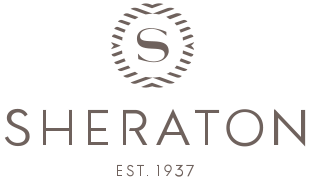
Sheraton Guadalajara Expo
- Experiences

Welcome to Sheraton Guadalajara Expo
Connect at our new five-star hotel in expo, guadalajara.
A blend of modern sophistication, innovative amenities and exceptional service, The Guadalajara Expo Hotel welcomes all travelers to La Perla Tapatia, Guadalajara City. A short drive away from Miguel Hidalgo International Airport, our hotel offers quick access to Plaza del Sol mall and Expo Guadalajara, one of the most important convention centers in Mexico. Settle into our brand new and comforting rooms and suites with free WiFi, a unique Sleep Experience and room service. Gain access to our exclusive Club Lounge when reserving our executive rooms and suites. Plus, relax with a treatment at our QUIDEA Spa or enjoy a meal in our hotels restaurant La Prieta. Additional hotel amenities include a 24 hour Fitness Cntr and onsite business facilities. When looking to plan a meeting or event, you will be delighted with our more than 400 square meters of smart, versatile spaces, complemented by exquisite catering and our comprehensive planning services.
Rooms & Suites
Rates vary by date & room type
FEATURED AMENITIES ON-SITE
Hotel information.
Check-in: 3:00 pm
Check-out: 12:00 pm
Minimum Age to Check In: 18
Smoke Free Property
Pets Not Allowed
No pets allowed
Complimentary On-Site Parking
Complimentary Valet Parking
"La Prieta" Restaurant is a casual eatery with a timeless design and a warm, relaxed atmosphere. We offer a fusion menu inspired by various cuisines, adapted to Mexican flavors and cooking styles, always striving for quality and a harmonious blend.
Our Bar offers a modern atmosphere, with screens and audio that will take you to enjoy the best matches. We have an extensive list of spirits and mixers to create a wide variety of high-quality cocktails and mixology.
More Ways to Enjoy Your Stay

QUIDEA (UPCOMING OPENING)
The spa has a beauty salon, ladies and gentlemen's area with relaxation area, dressing rooms with lockers, steam and massage cabin, as well as a cabin for couples.
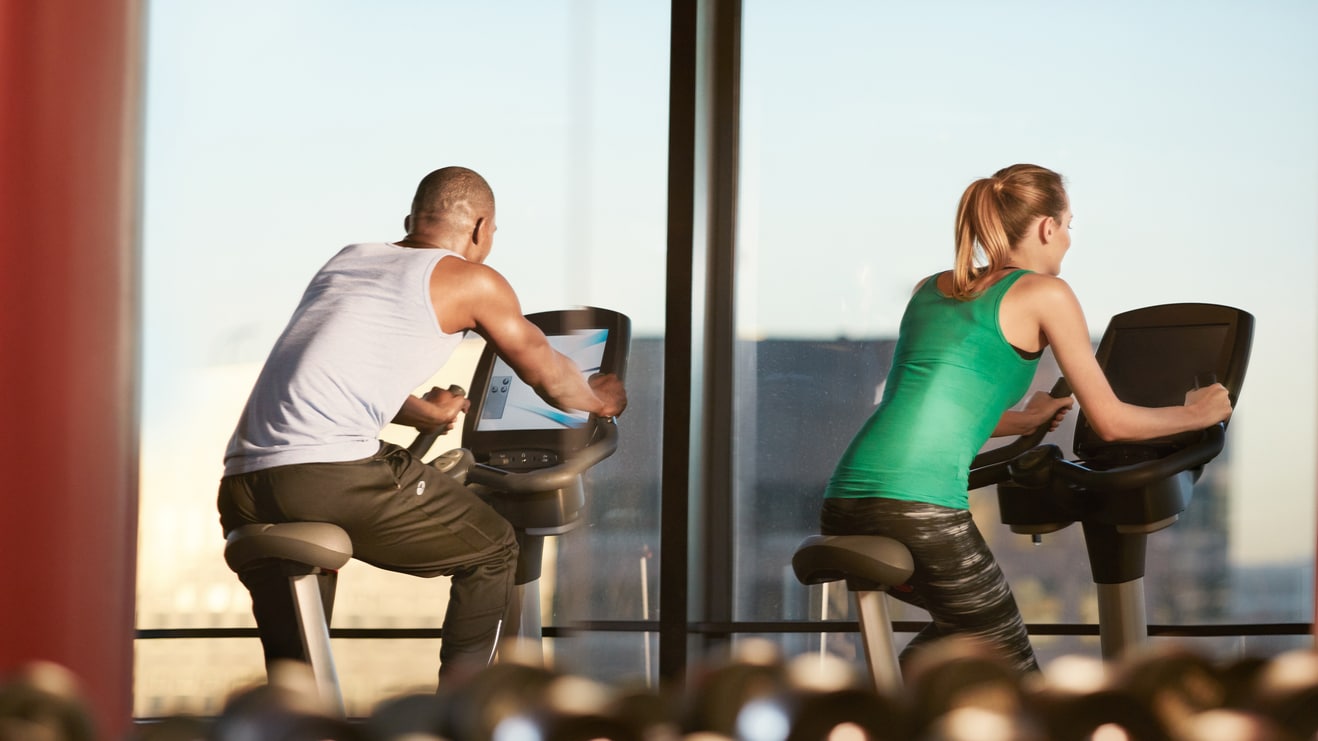
Fitness Center
Our hotel gym is equipped with cardio machines and free weights, all while having an excellent view.

GETTING HERE
Av. Mariano Otero 1510, Rinconada del Sol, Guadalajara, Jalisco, Mexico, 45055
Taxi; fee: 25.00 USD (one way)
Property Details
Accepts: Cash, Credit Cards
Property has elevators
For more information about the physical features of our accessible rooms, common areas or special services relating to a specific disability please call +52 33-3045-0101
Accessible Entrance to On-Site Pool
Entrance to On-Site Business Center is Accessible
Entrance to On-Site Fitness Center is Accessible
Entrance to On-Site Spa is Accessible
Main Entrance is Accessible
Meeting Spaces are Accessible
On-Site Restaurants are Accessible
Mobility accessible rooms
Roll-in Shower
Frequently Asked Questions
The check-in time at Sheraton Guadalajara Expo is 3:00 pm and the check-out time is 12:00 pm.
The pet policy at Sheraton Guadalajara Expo is:
Pets Not Allowed (No pets allowed)
The parking options at Sheraton Guadalajara Expo are:
The property amenities at Sheraton Guadalajara Expo are:
Yes, Sheraton Guadalajara Expo has free Wi-Fi available to hotel guests.
Unlock your stay with the Marriott Bonvoy™ App
SHERATON GUADALAJARA EXPO
Av. Mariano Otero 1510, Rinconada del Sol,
Guadalajara, Jalisco, Mexico, 45055
Top Destinations
Our company.
© 1996 – 2024 Marriott International, Inc. All rights reserved. Marriott Proprietary Information
Please select your preferred language
The americas, asia and oceania.
- Bahasa Indonesia
INTERNATIONAL
Yakor Hotel
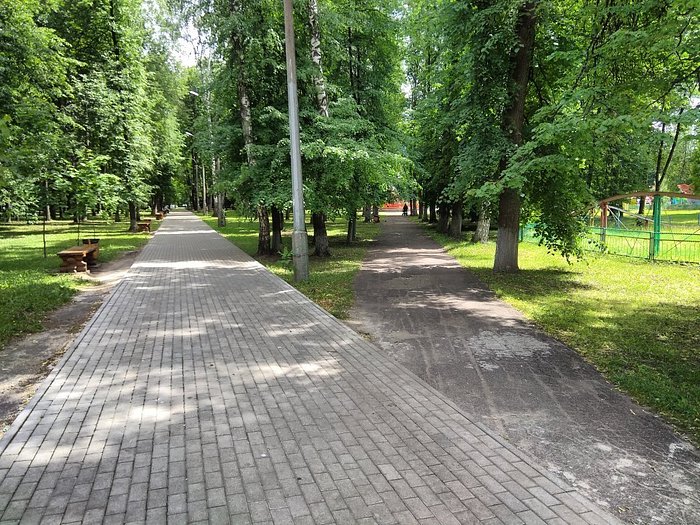
View prices for your travel dates
- Excellent 1
- Very Good 2
- All languages ( 6 )
- Russian ( 6 )
- English ( 0 )
Own or manage this property? Claim your listing for free to respond to reviews, update your profile and much more.
Yakor Hotel - Reviews & Photos
- All Moscow Hotels
- Most Popular
- Hotels by Class
- Quick Search
- Request Best Rates
- Recommended Hotels
- Event Planning Tips
- Moscow Meeting Space
- Request a Proposal
- Group Travel Info
- Russian Visa Info
- Request Visa Support
- Airport Transfers
- Airline & Rail Tickets
- St. Petersburg Hotels
Cosmos Hotel
Which is the nearest metro station.

IMAGES
VIDEO
COMMENTS
A collection of key German phrases you need to travel around Germany. Learn to order at restaurants, ask for directions, check in to your hotel, and more. ... German Phrases in the Hotel. One of the first things you'll do when you arrive in a German-speaking country is check into your hotel. There are a few standard phrases which you can use ...
The Learn German Phrases & Words app is designed to boost your speaking capabilities while traveling. It can be used without an internet connection, so you can always depend on it. The visual guide has carefully categorized sections like greetings, eating, romance and health.
German Phrases for Transportation and Directions. Entschuldigung, wo ist das WC? - Excuse me, where is the restroom? Es ist um die Ecke - It's around the corner. In welcher Richtung ist der Bahnhof? - Which direction is the station? Nach links/rechts - To the left/right. Sie müssen links/rechts/geradeaus laufen/fahren - You have to ...
In this post you will discover 47 tried and tested German travel phrases that have worked well for me on my many trips to Germany. You'll also hear audio of each of the phrases. After reading this post you will: Know how to say 47 essential German travel phrases. Hear how each of the phrases sound. Be able to mix and match which ever phrases ...
Gern geschehen. Ich wünsche Ihnen einen angenehmen Aufenthalt! Good night. Gute Nacht. Good night! Gute Nacht! Finally,every hotel tells a story, whether it's the tale of a small inn in a remote village or that of a global hotel chain. And every guest walks away with an experience and memories that leave an imprint, whether that stay was for ...
Basic German For Emergencies. Unfortunately, even the most meticulously-planned holiday isn't safe from the occasional hazard. Hence, here are some basic German phrases to use in moments of emergency: Hilfe! Help! Feuer! Fire! Halt! Ein Dieb!
In this post we'll look at a lot of German vocabulary and expressions that will come in handy when you travel. Let's start with the basics. Mein Koffer: My Suitcase. Before you travel, you of course need to pack. So let's start there. der Koffer, -Ø suitcase; Ich muss meinen Koffer packen. I need to pack my suitcase.
Super, vielen Dank. (Great, thank you.) In German hotels, breakfast is typically a large and important meal, with a wide range of options including: Käse (cheese) Brot (bread) Fleisch (meat) Früchte (fruits) und mehr (and more) Breakfast is often included in the room rate and is typically served in a communal breakfast room.
All travel phrases come with audio recordings, so just click on the play button to listen to the pronunciation. 😊. Common German Travel Phrases. Let's start with the absolute basics of German. If you don't have much time left and want to make sure you can at least say Hello, Goodbye and yes in German, have an intense stare at this list:
Now, onto the most basic German words and phrases for travellers: Greetings. These are the most common German travel phrases, and always important to have at the ready. Hallo! Hello! Guten Morgen! Good morning! Guten Tag! Good day! Guten Abend.
German Hotel Vocabulary - We've gathered and listed 30 useful German sentences any traveler will find useful whether on vacation or a business trip. ... If you are traveling to a German speaking country, some of the most basic German phrases you will probably need to learn and pronounce first will be hotel related conversations. We've gathered ...
These phrases cover a wide range of situations that travelers might encounter, from wishing someone well on their journey to navigating hotels, airports, and transportation, as well as handling emergencies. Having these phrases at hand can enhance the travel experience in German-speaking countries by facilitating smoother communication.
82 Essential German Travel Phrases And Words For Daily Survival André Klein · Thursday, July 20th, 2017 Planning a visit to Germany or Austria? Already there perhaps? ... talking to people, booking a hotel room and more. Note: Some of these phrases appear twice, once in their formal and their informal version. As a general rule of thumb, if ...
German Hotel Vocabulary & Phrases. Instructor Maria Elena Knolle Cano. Maria Elena has taught Spanish and German to learners of all levels in Europe, Asia and Australia and has a Master's degree ...
Quick German Phrases for Travel. Here are a helpful few phrases for that long stopover in a German-speaking nation or an overnight stay before you fly to your actual destination. Print out the article, tuck it in your carry-on bag, and be prepared to shop, eat, and rent a hotel room in German. Hotels. Use the following German vocabulary and ...
German Phrases for Travelers is a 20 min video that will teach you the very basics of the German language that any foreigner travelling around Germany will find useful.; Basic German Travel Phrases from expertvillage is a collection of fourteen youtube videos that will not only teach you essential German travel phrases like those used when greeting people, asking for directions, travelling ...
And for much, much more vocabulary, and a scientifically proven method for learning it, download the MosaLingua Learn German app. Happy learning and hope to see you again soon! This Free German Travel Phrasebook contains more than 1000 words and phrases in German & English. It is organized by categories and ordered by frequency.
Basic German Travel Phrases. Penelope holds a doctorate degree in German and a professional teaching license in the state of Colorado. She has taught middle school through university, online and ...
Practice Your Pronunciation With Rocket Record. Rocket Record lets you perfect your German pronunciation. Just listen to the native speaker audio and then use the microphone icon to record yourself. Once you're done, you'll get a score out of 100 on your pronunciation and can listen to your own audio playback. (Use a headset mic for best ...
Have a look (7)Elektroskaya Station before backtracking into the center of Moscow, stopping off at (8)Baumskaya, getting off the Dark Blue/#3 line at (9)Ploschad Revolyutsii. Change to the Dark Green/#2 line and go south one stop to see (10)Novokuznetskaya Station. Check out our new Moscow Indie Travel Guide, book a flight to Moscow and read 10 ...
43 reviews. #1 of 4 hotels in Elektrostal. Location. Cleanliness. Service. Value. The hotel "Apelsin" in Electrostal which was opened in December 2012 is the newest hotel in the town. In May 2015 opened the second floor of our hotel. Total number of rooms reached 81.
It reveals this year's highest-rated hotels in the world, according to its global travel community. The company analysed 12 months of review data for over 1.6 million hotels listed on the site.
A blend of modern sophistication, innovative amenities and exceptional service, The Guadalajara Expo Hotel welcomes all travelers to La Perla Tapatia, Guadalajara City. A short drive away from Miguel Hidalgo International Airport, our hotel offers quick access to Plaza del Sol mall and Expo Guadalajara, one of the most important convention ...
Many travellers enjoy visiting Summery House A.I. Morozova (12.1 km) and Shirokov House (13.6 km). See all nearby attractions. Yakor Hotel in Elektrostal, Russia: View Tripadvisor's 6 unbiased reviews, photos, and special offers for Yakor Hotel, #3 out of 4 Elektrostal hotels.
It's less than five minutes' walk from the hotel to VDNKh (pronounced Veh-Deh-En-Kha) Metro Station, which is on the orange line and six stops north of Kitay-Gorod, in the very centre of Moscow. To reach the metro station from the hotel, turn right out of the front entrance and walk round the hotel to the pedestrian underpass across Prospekt Mira.